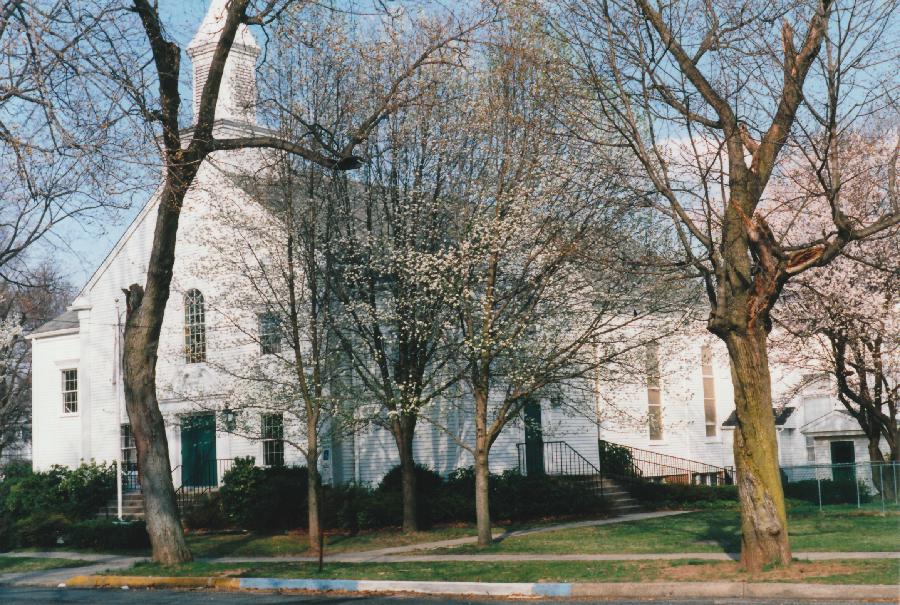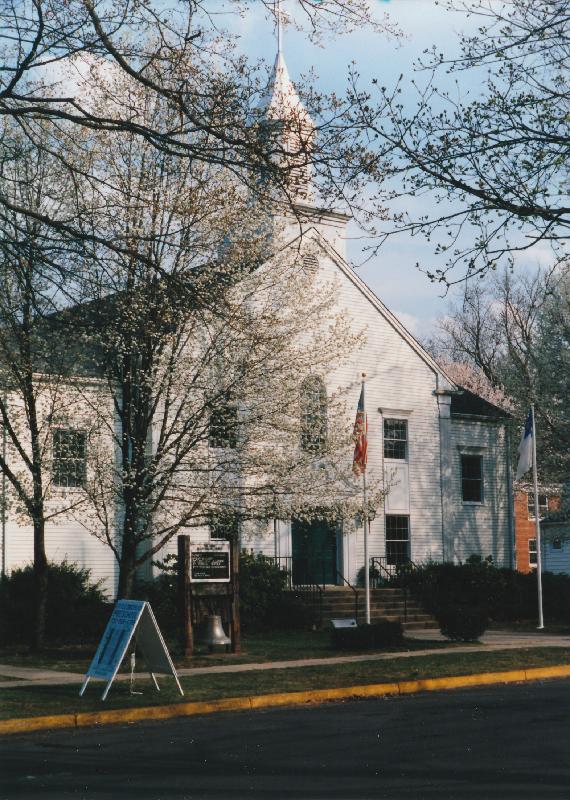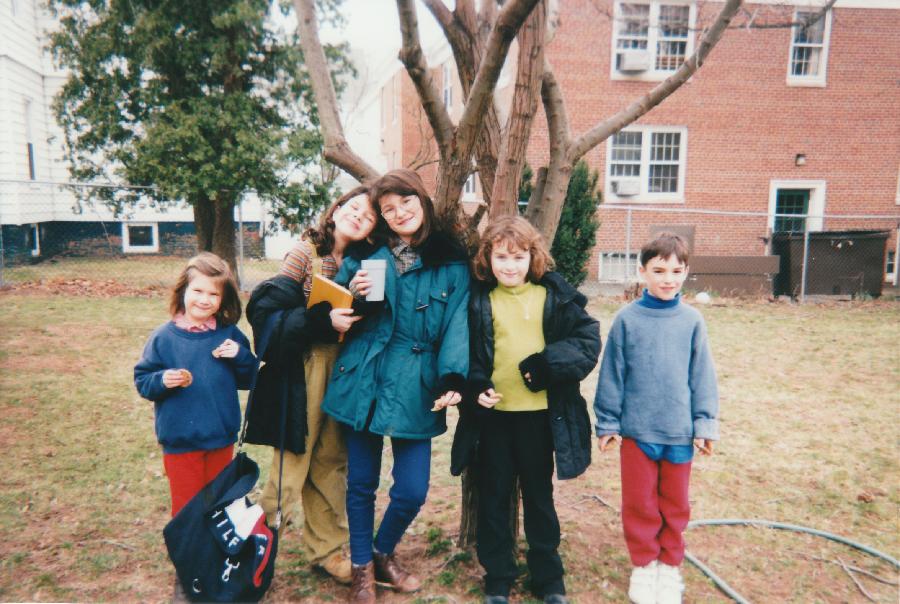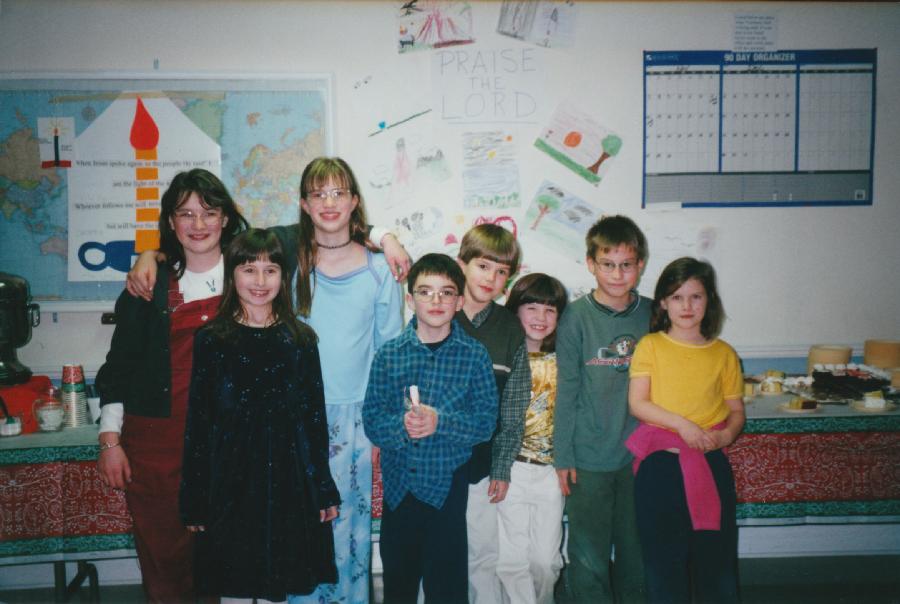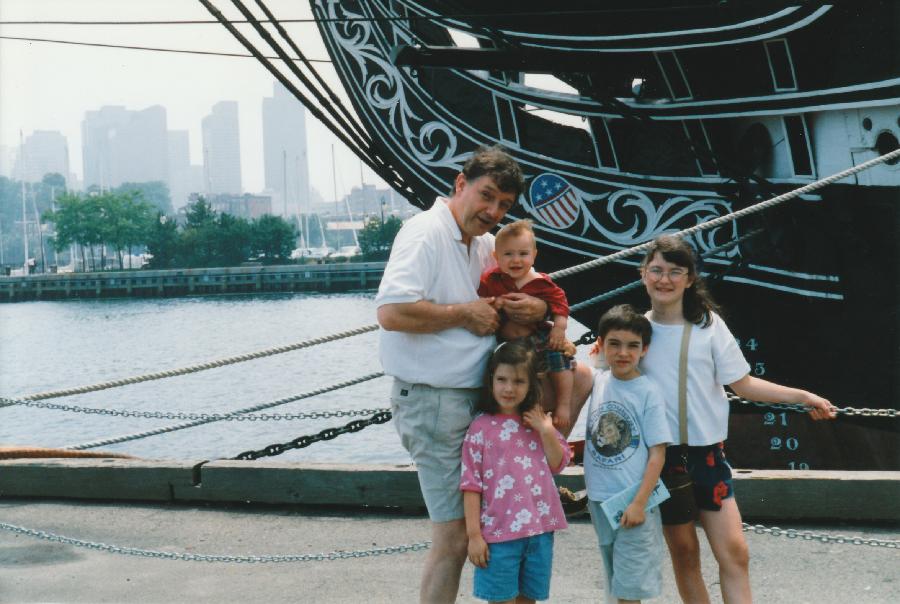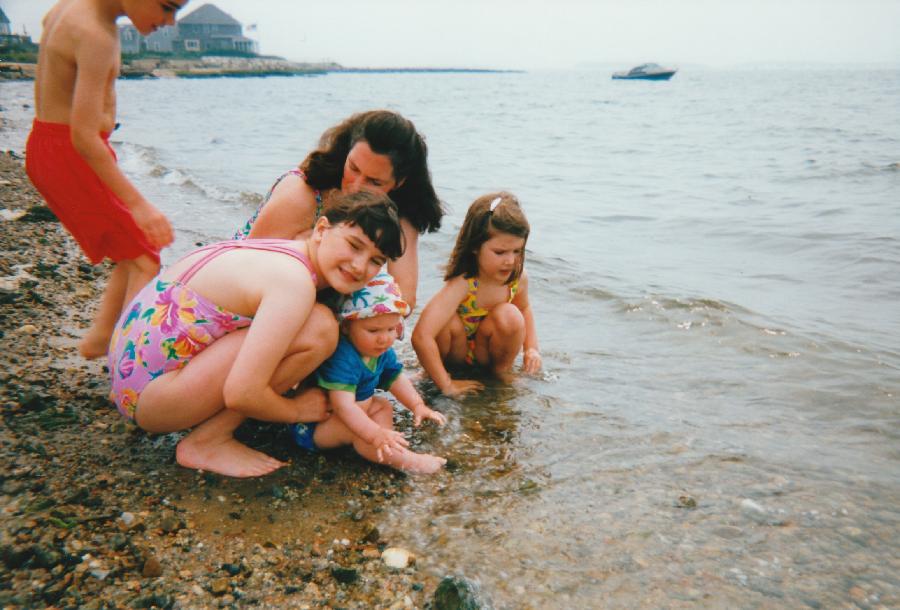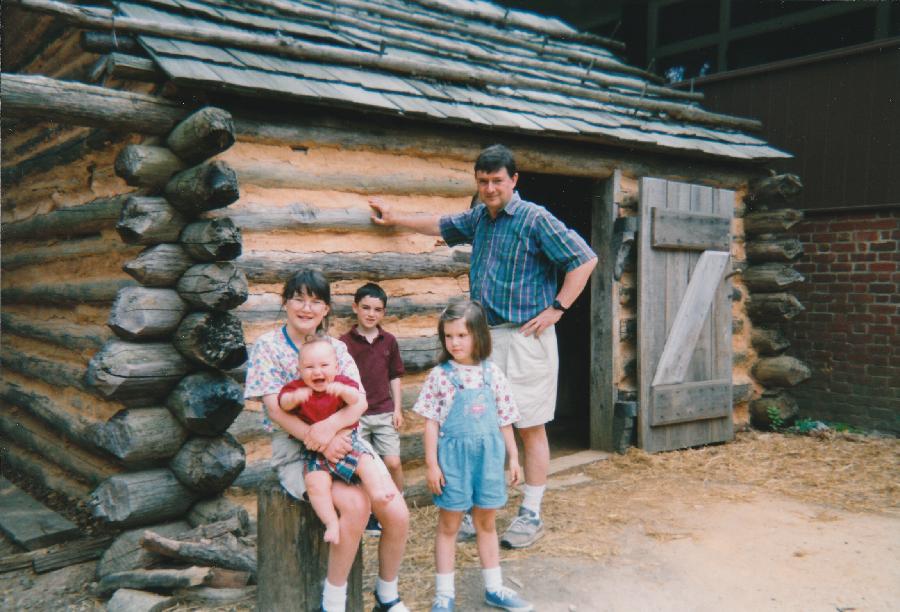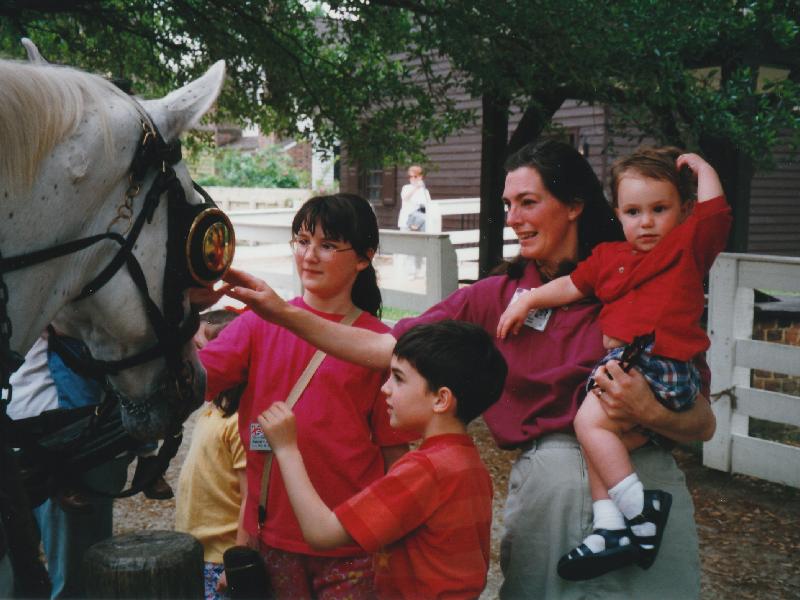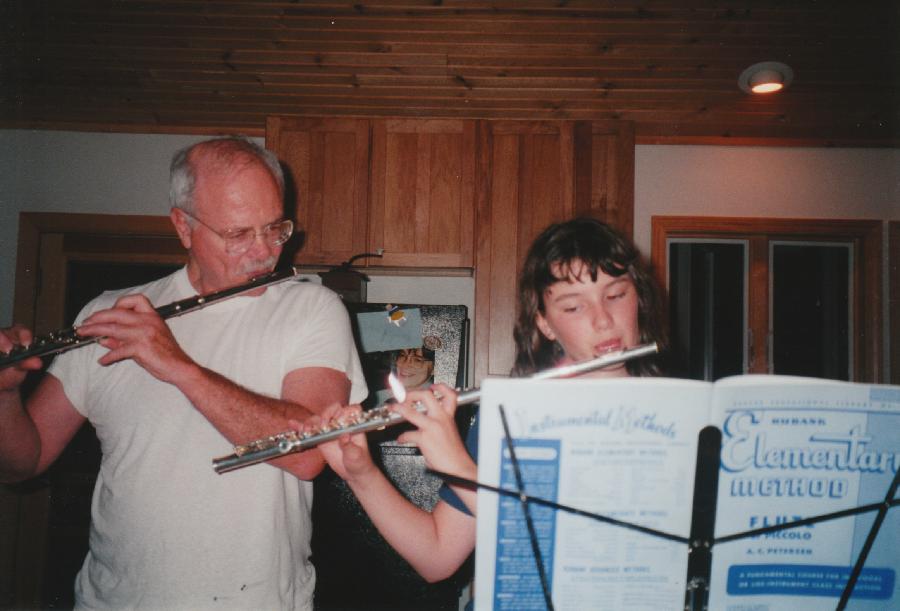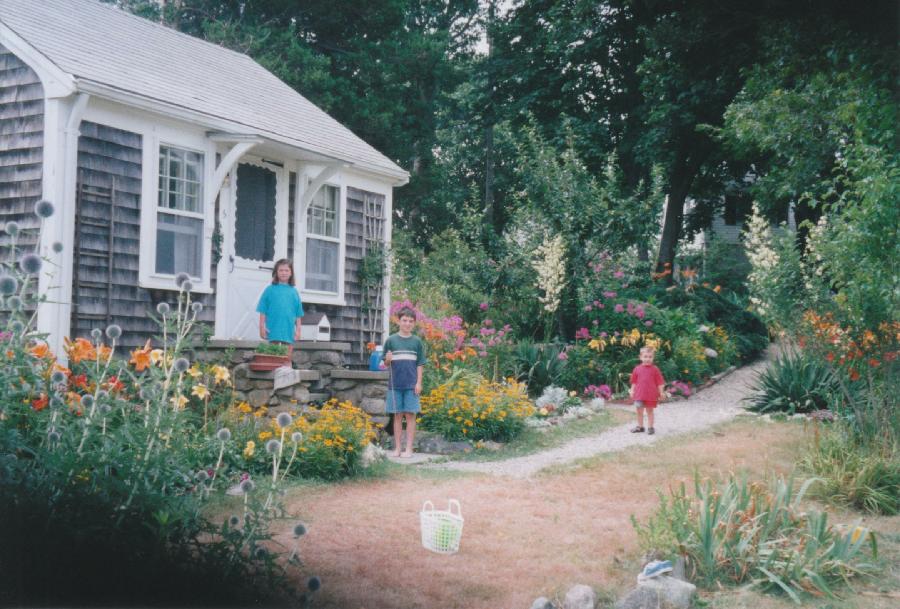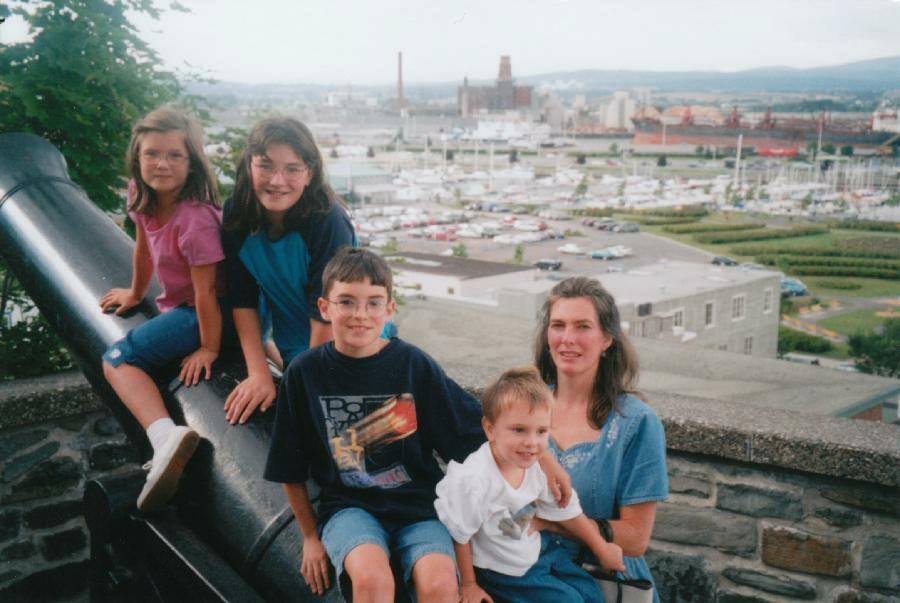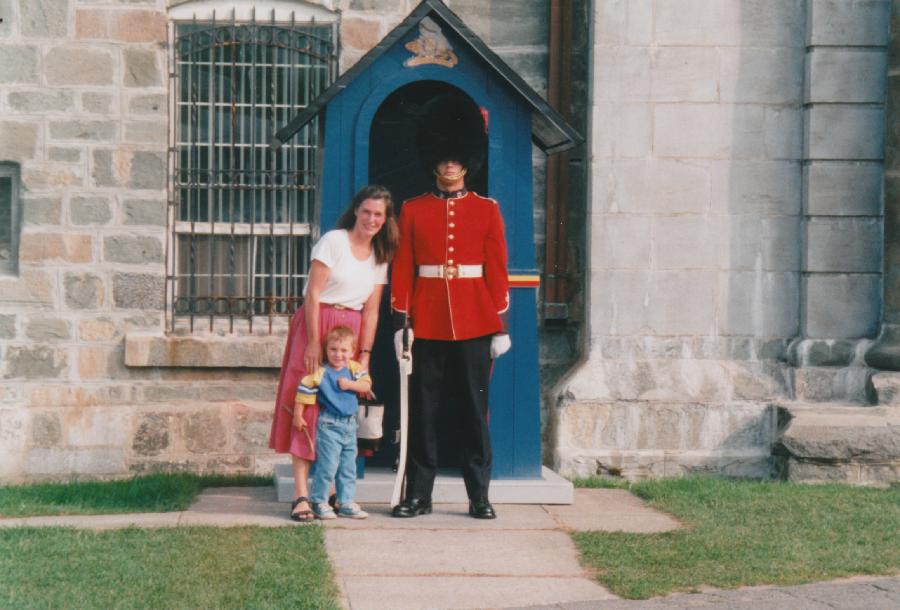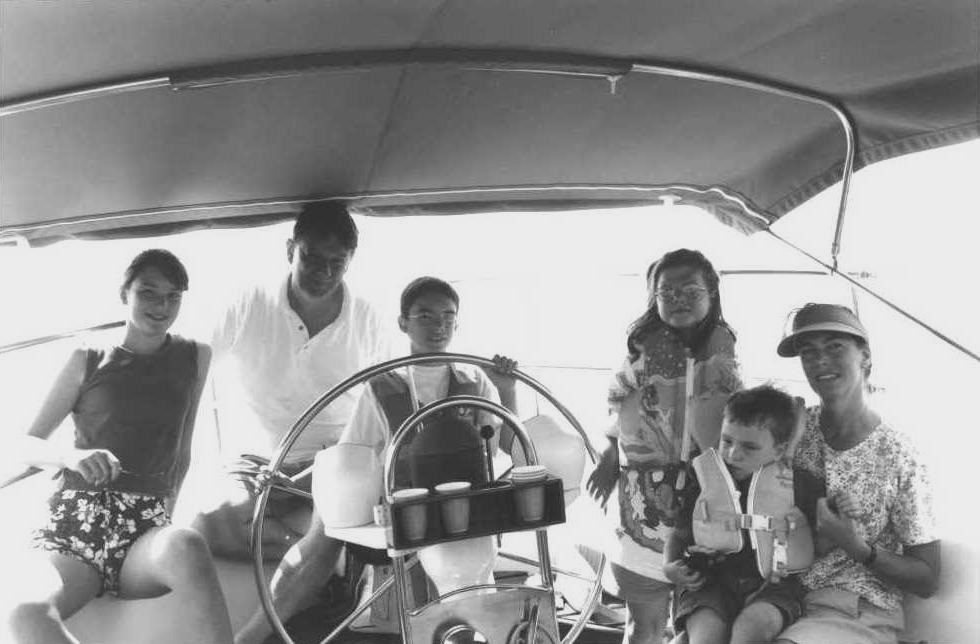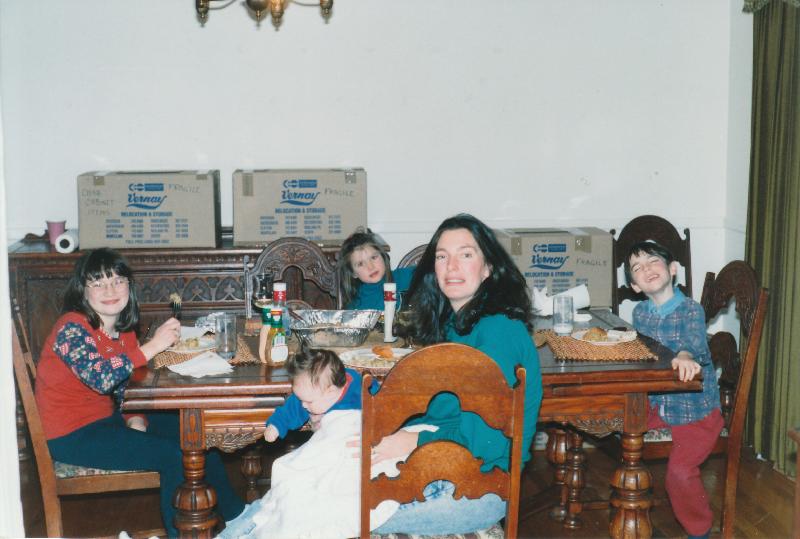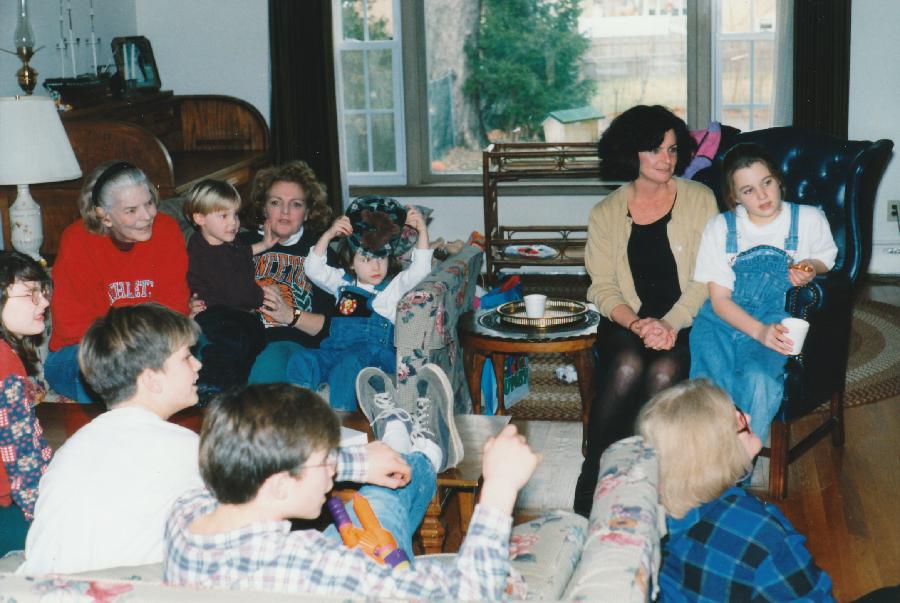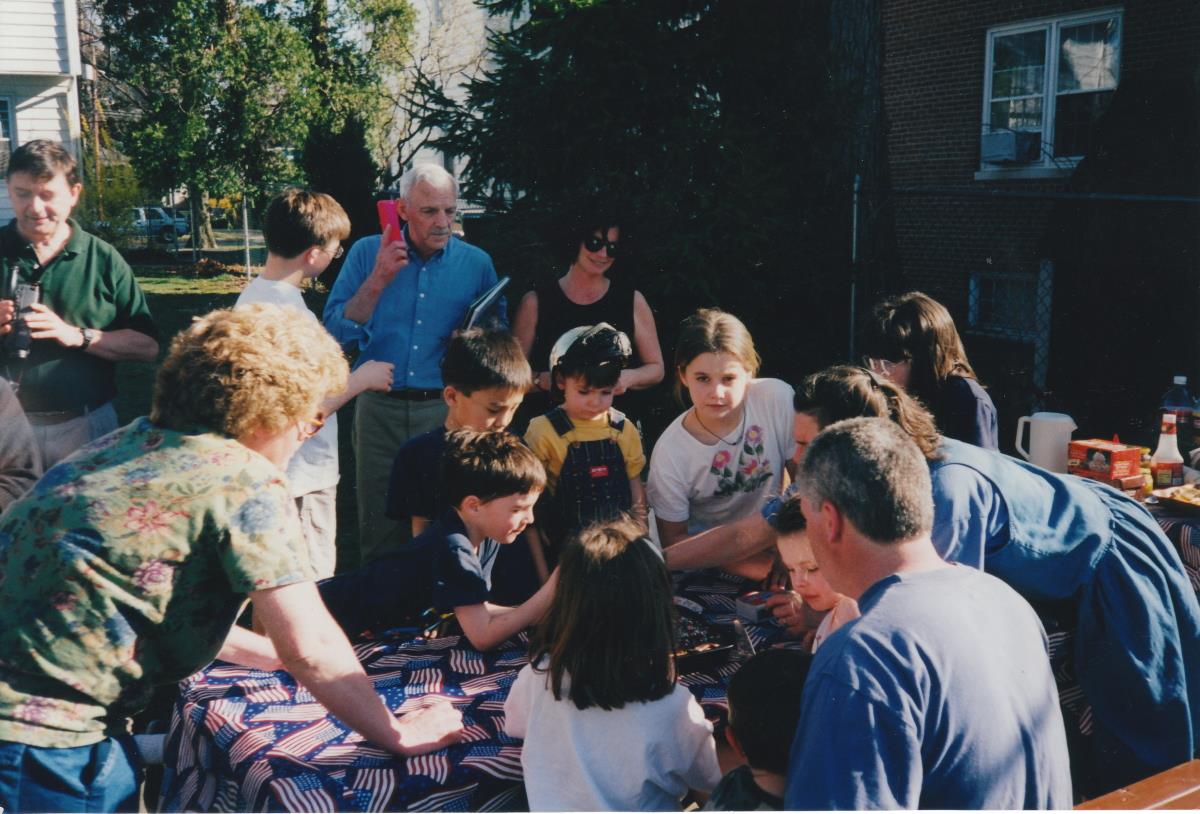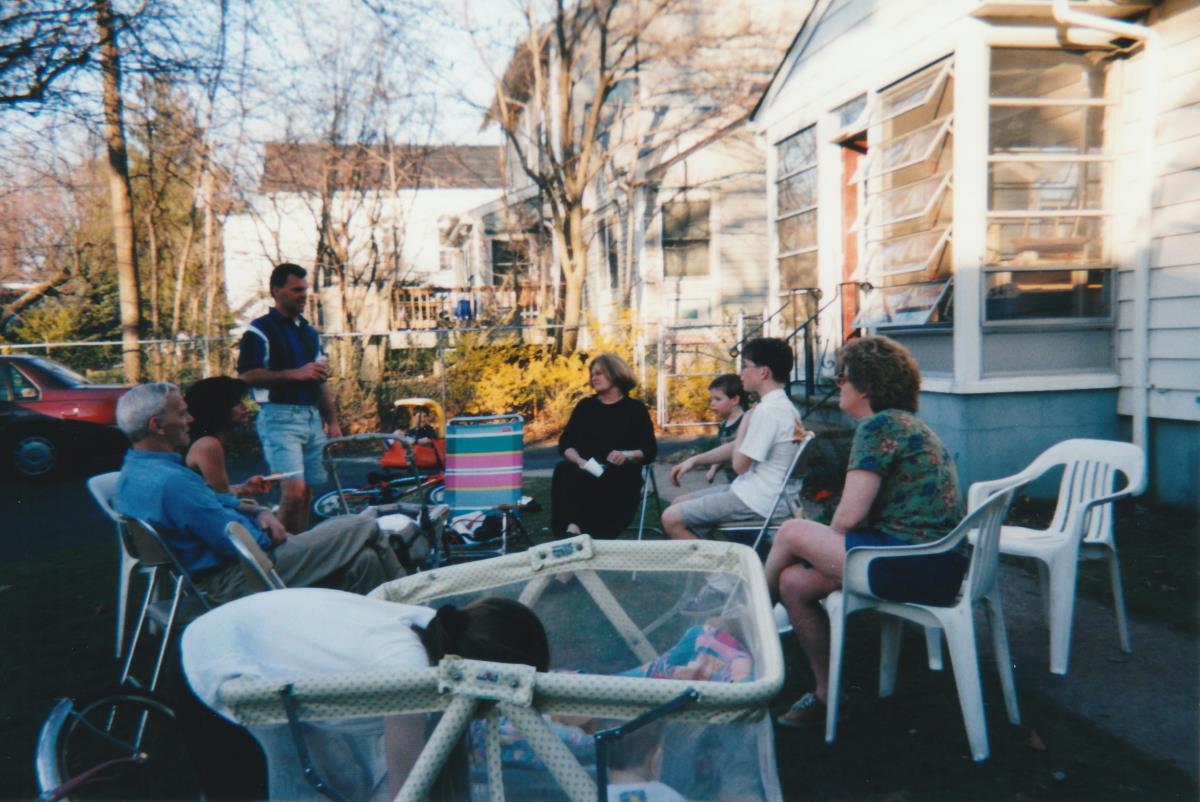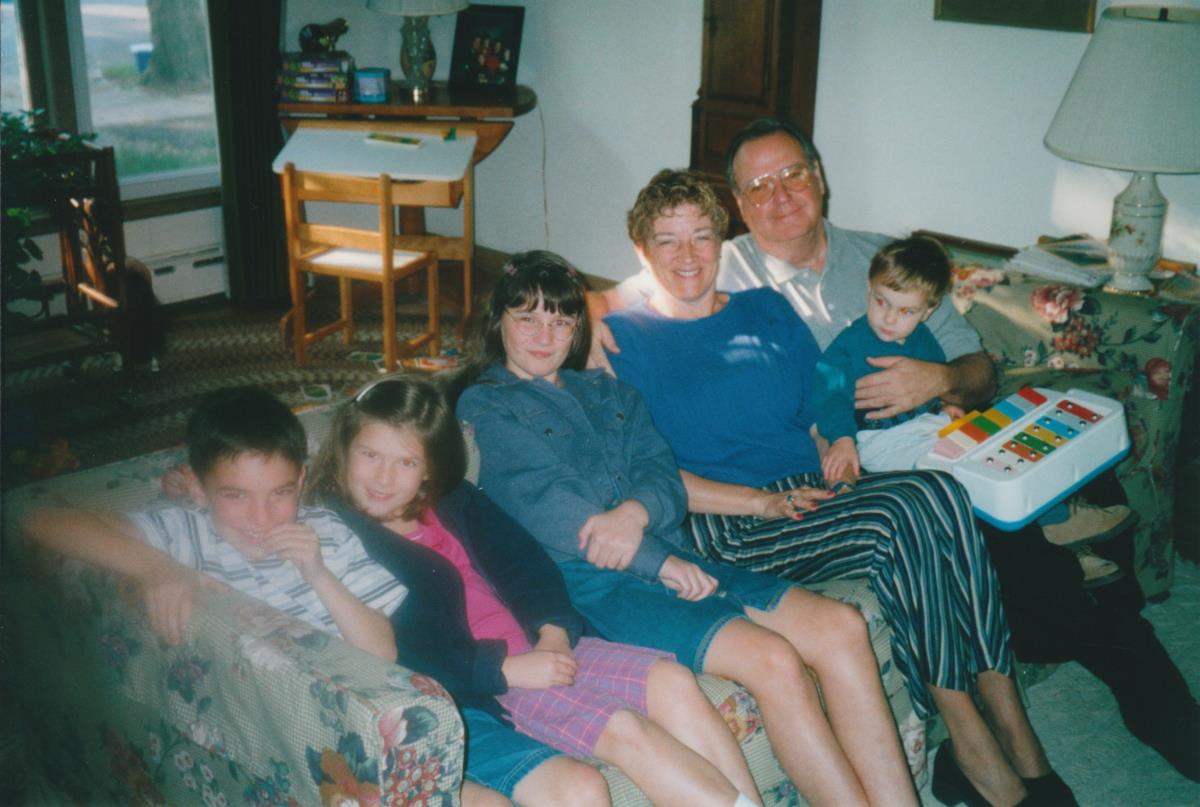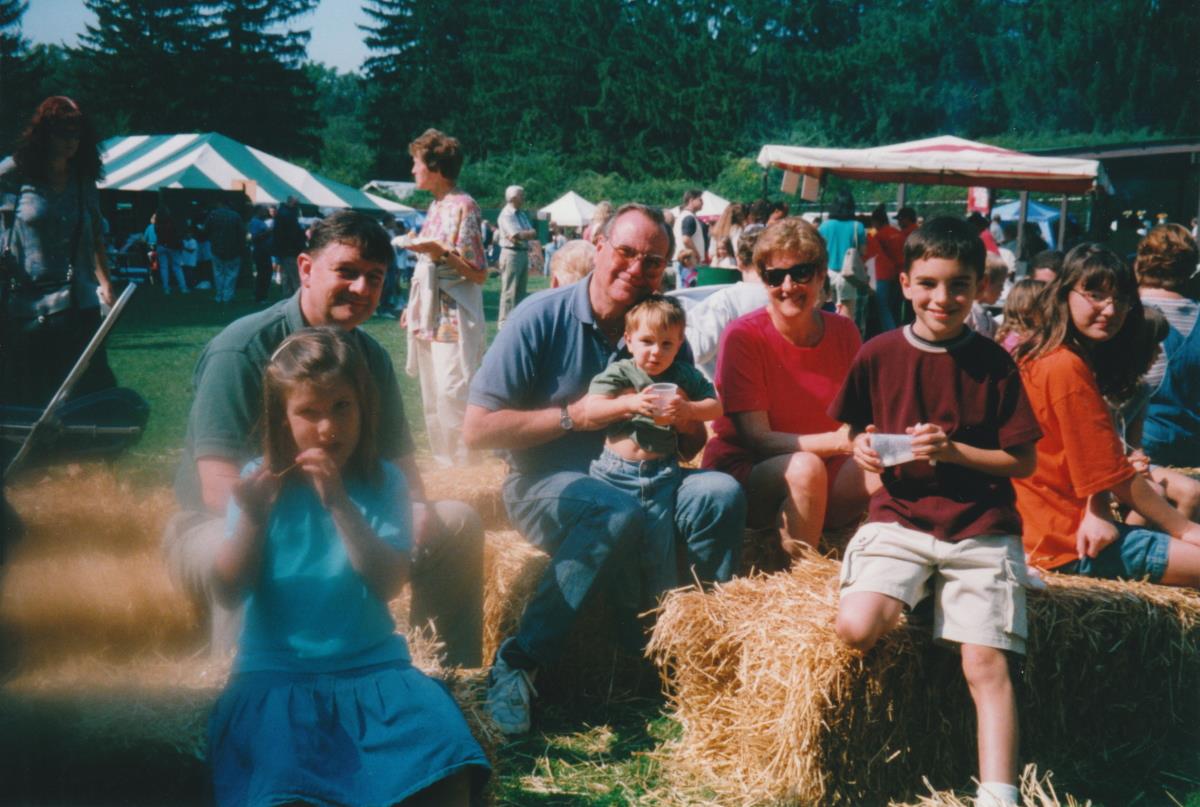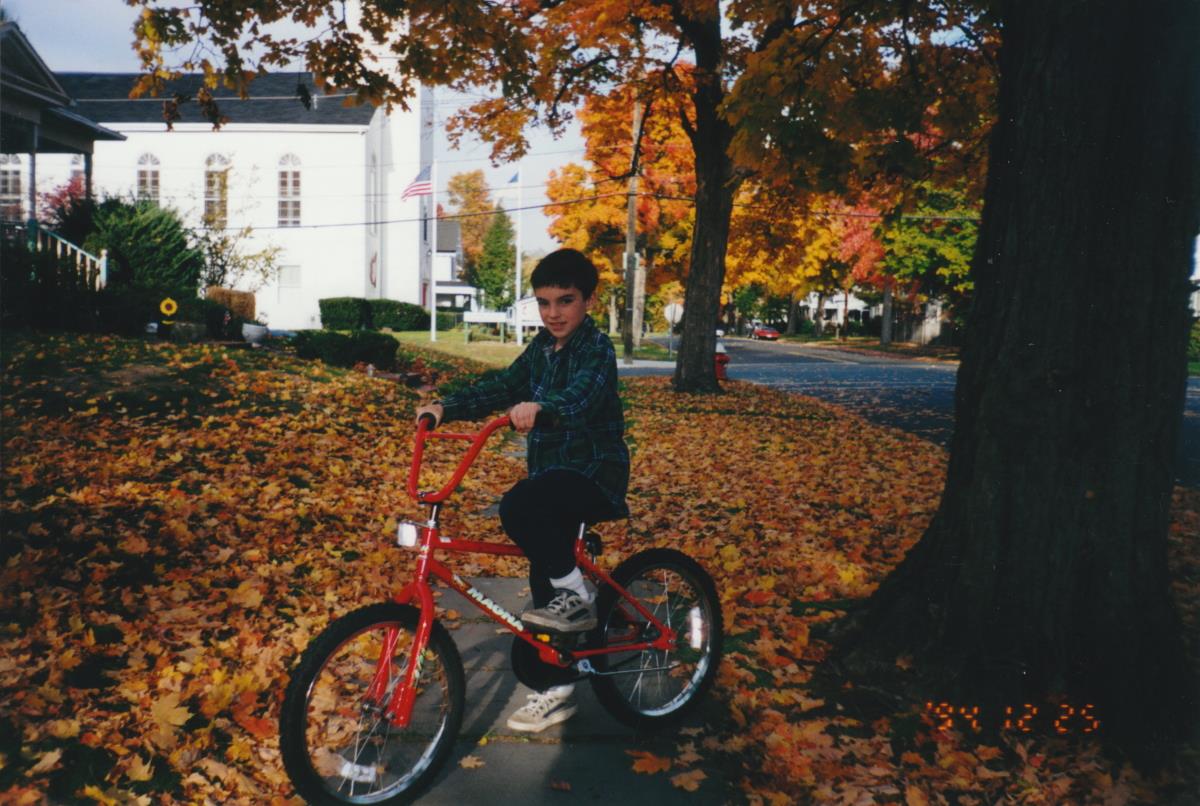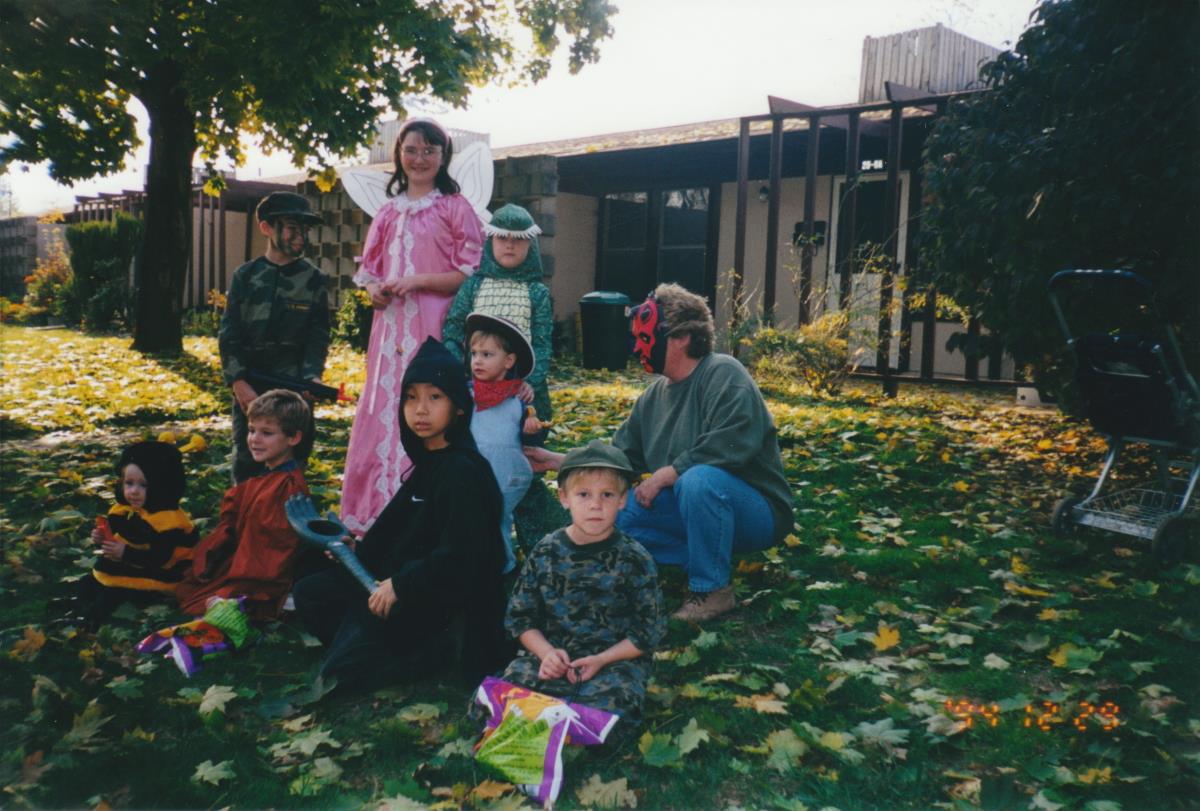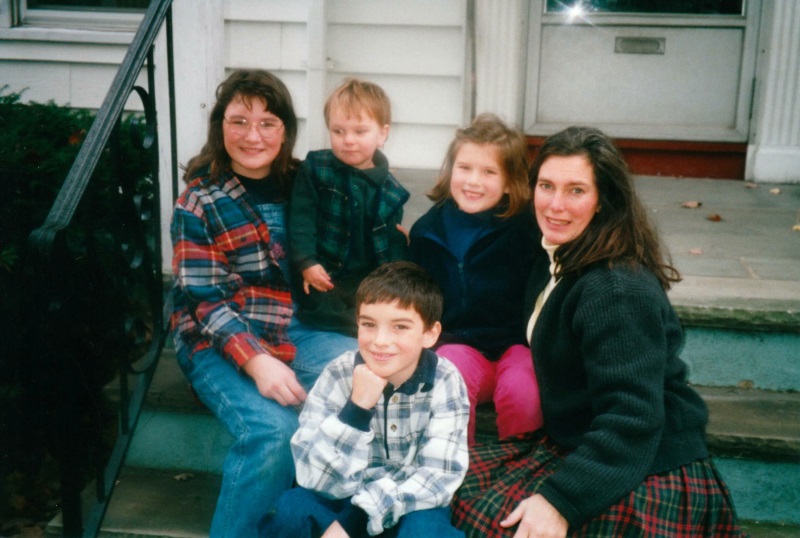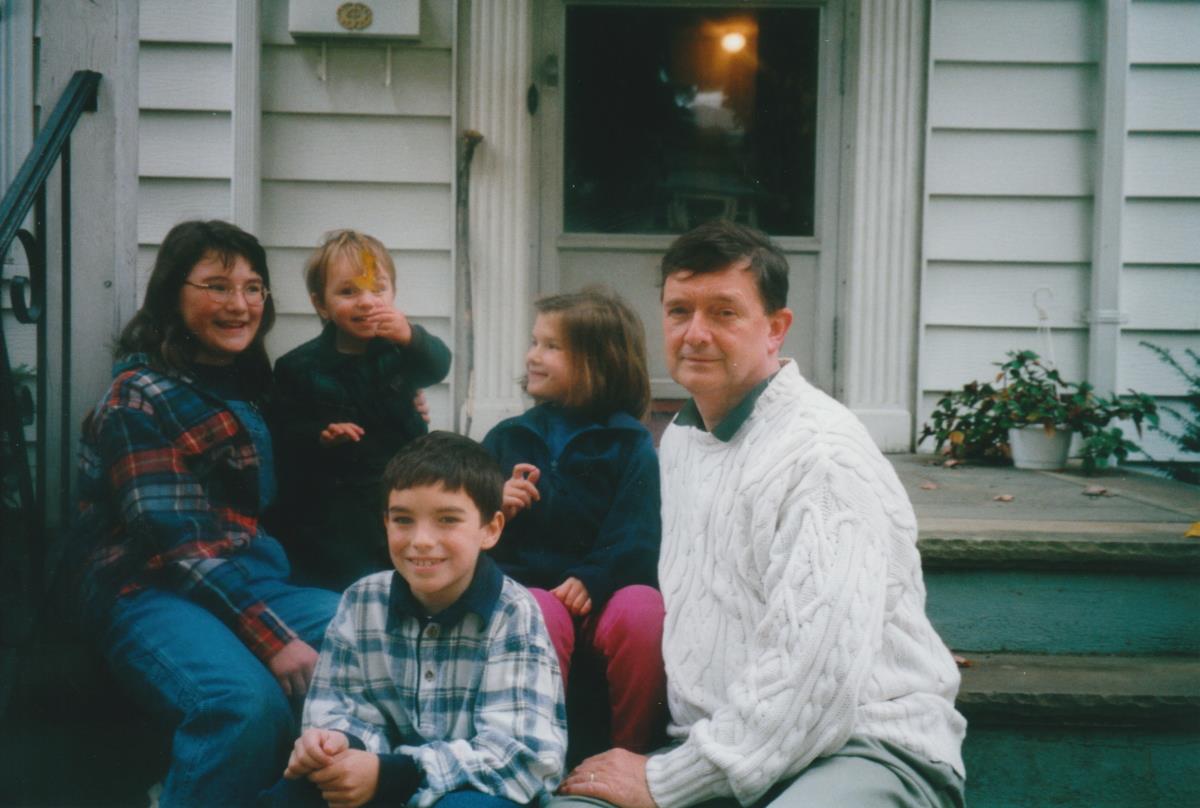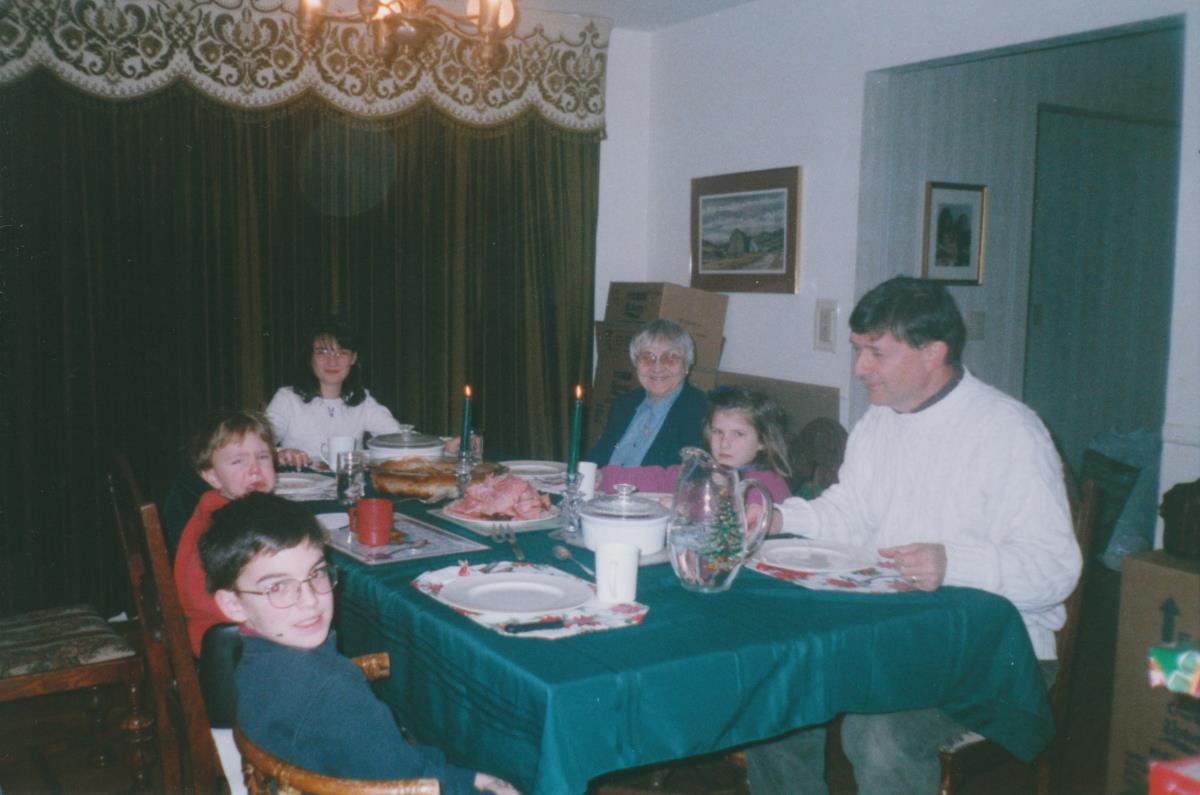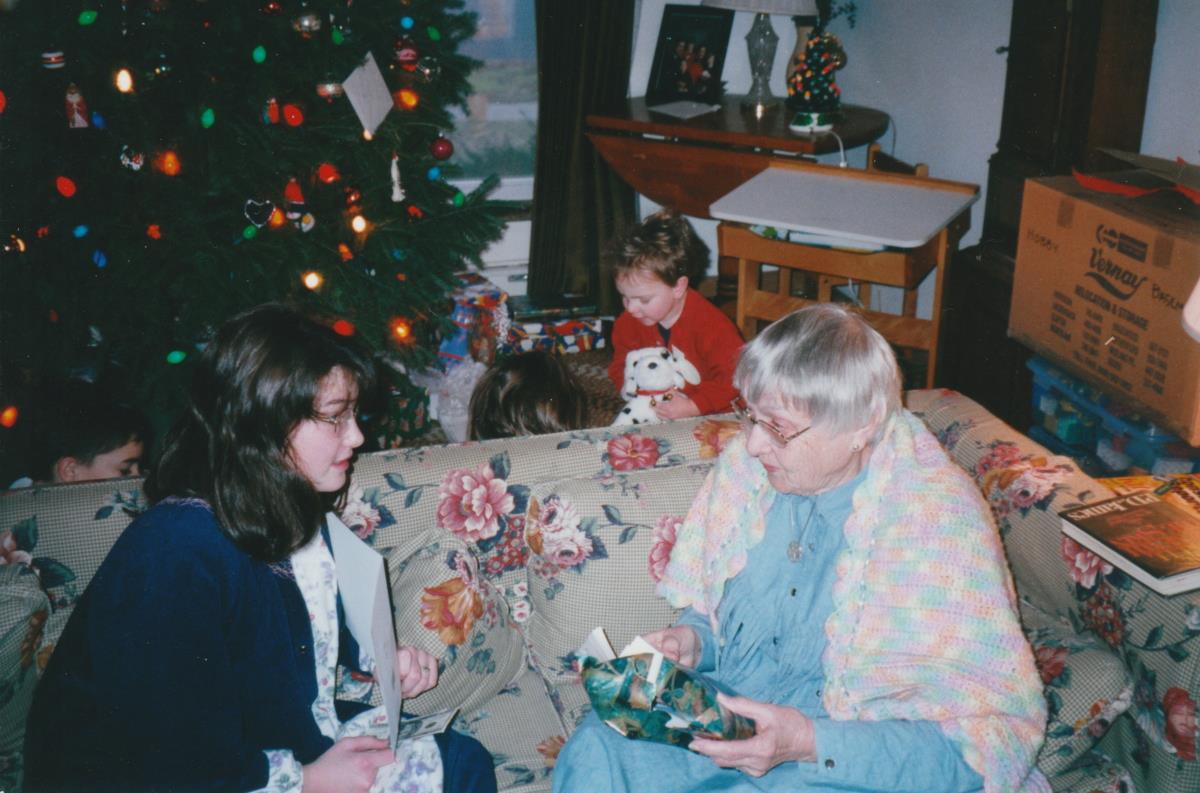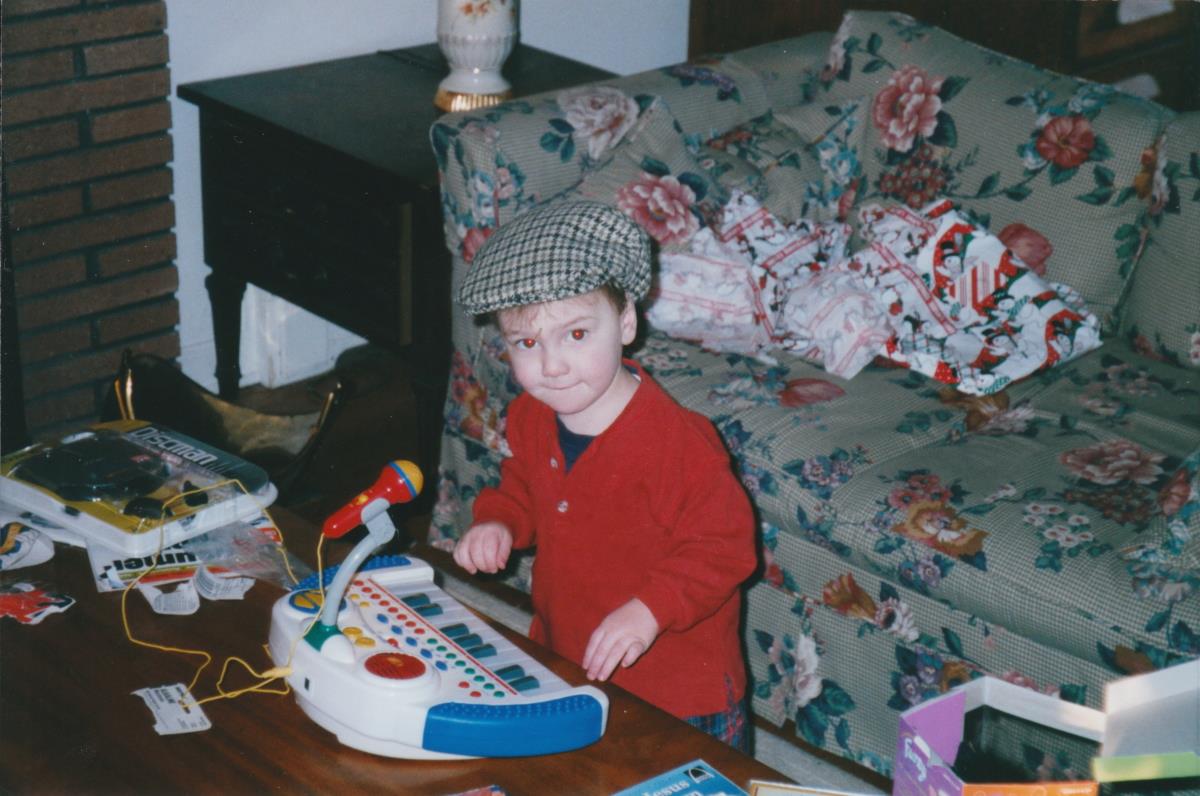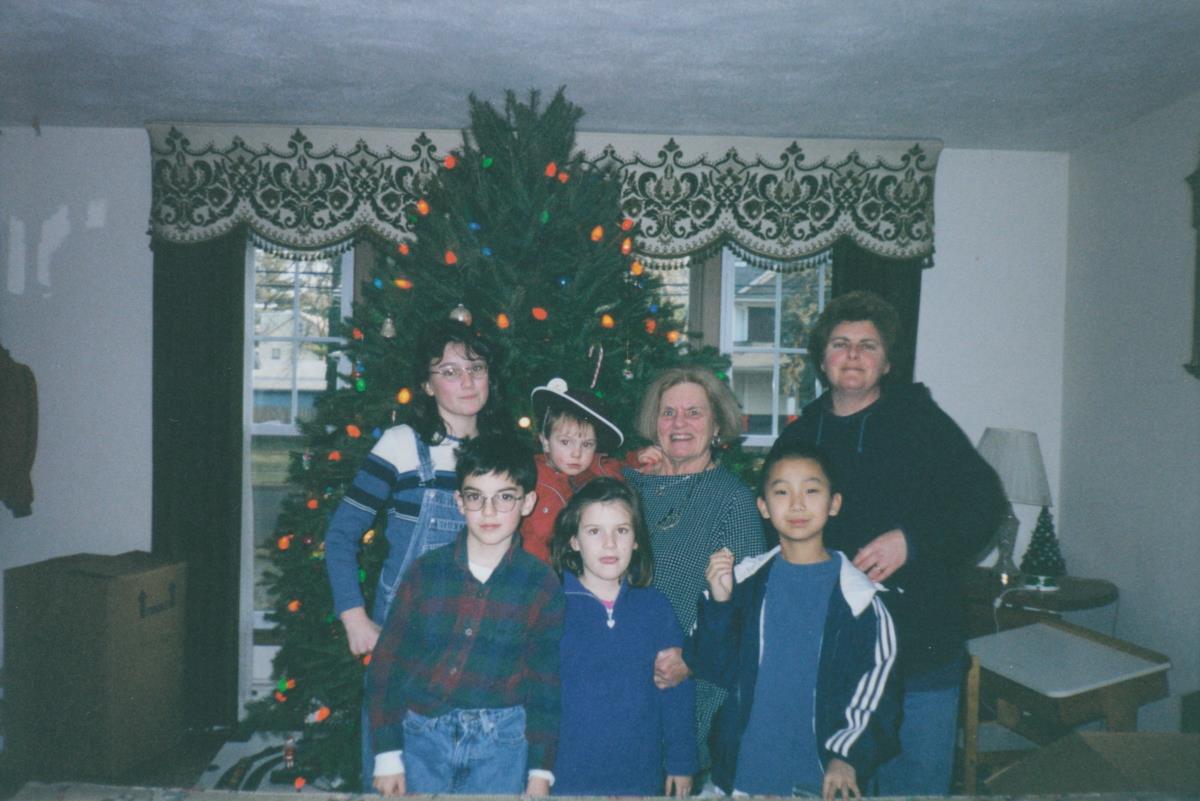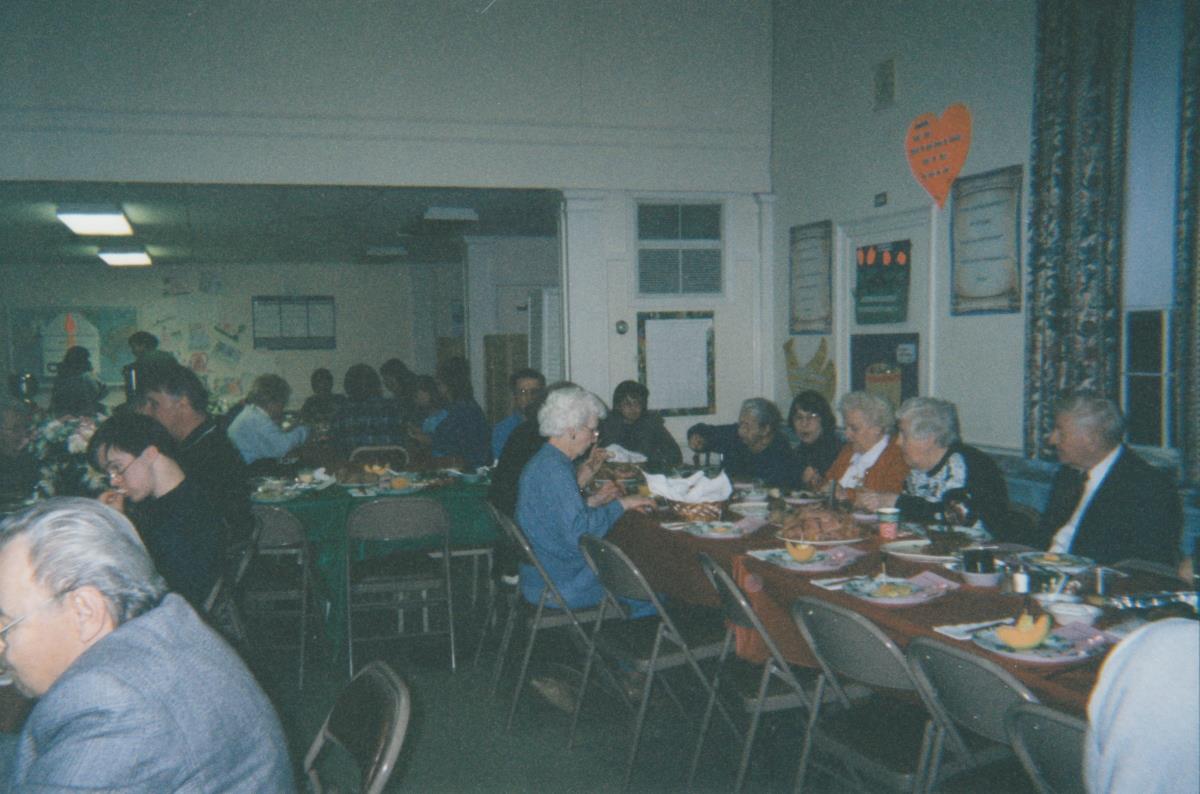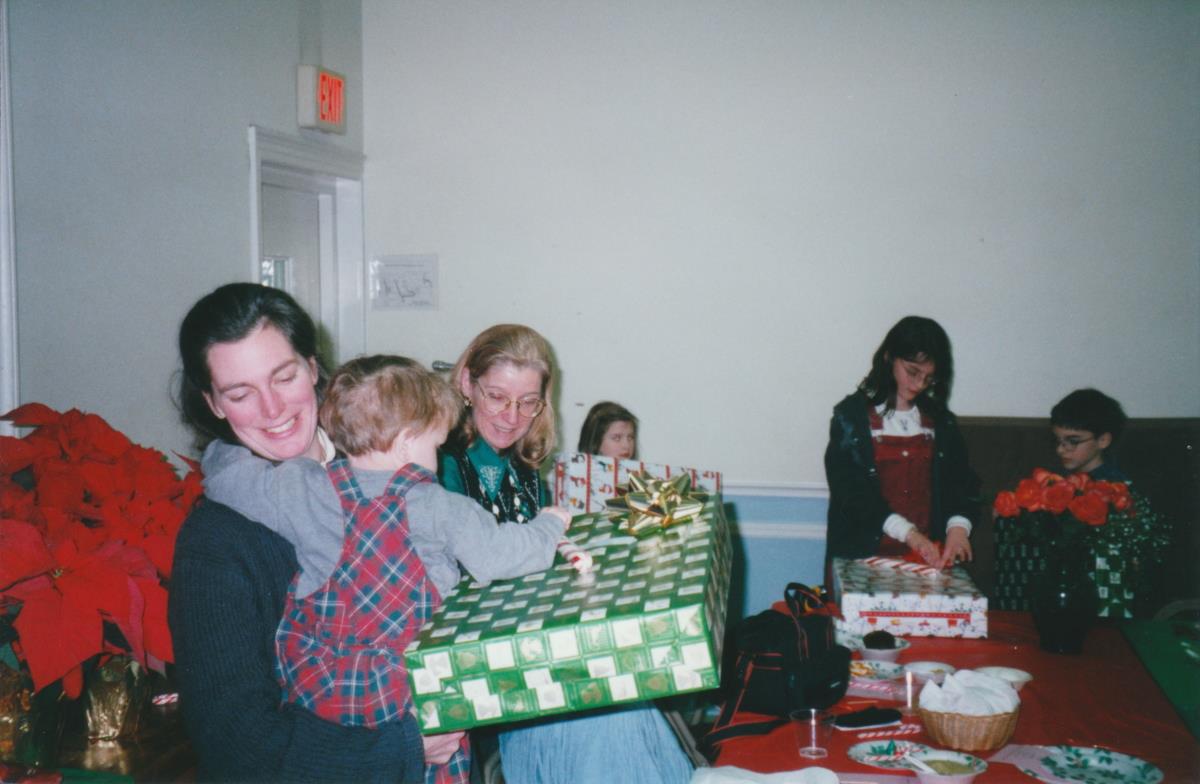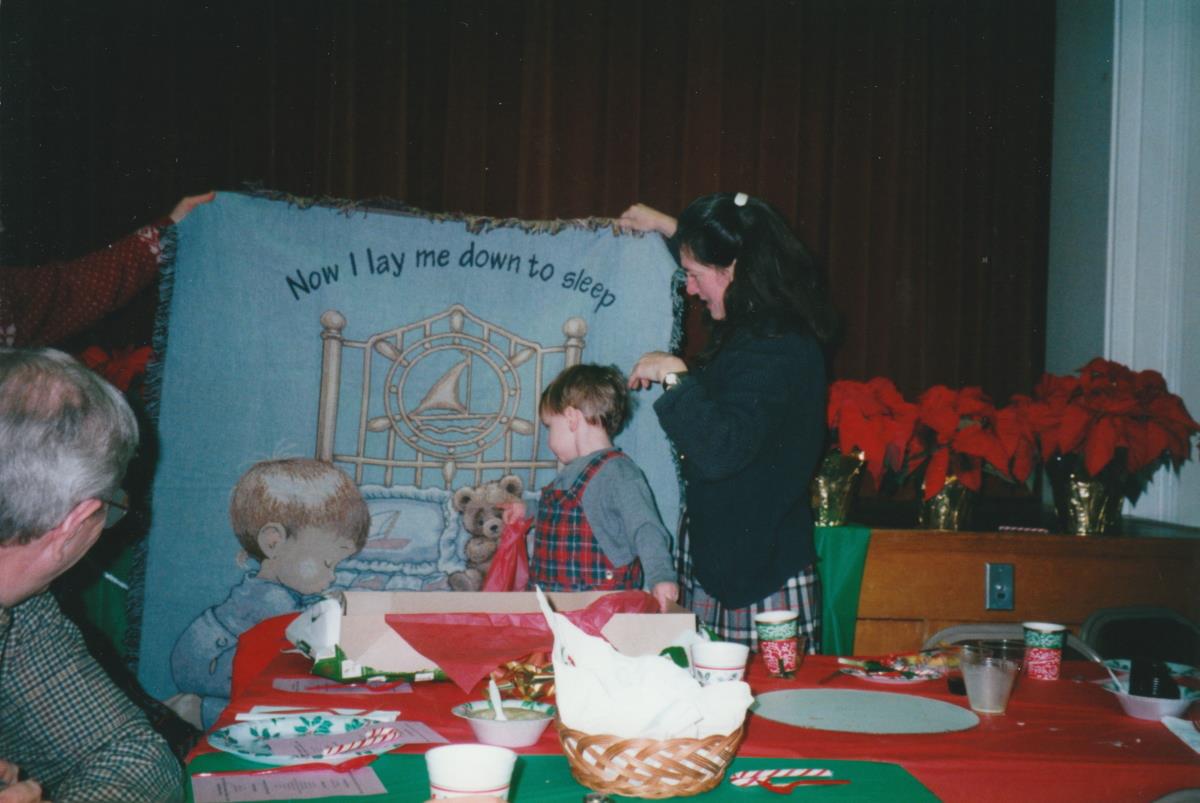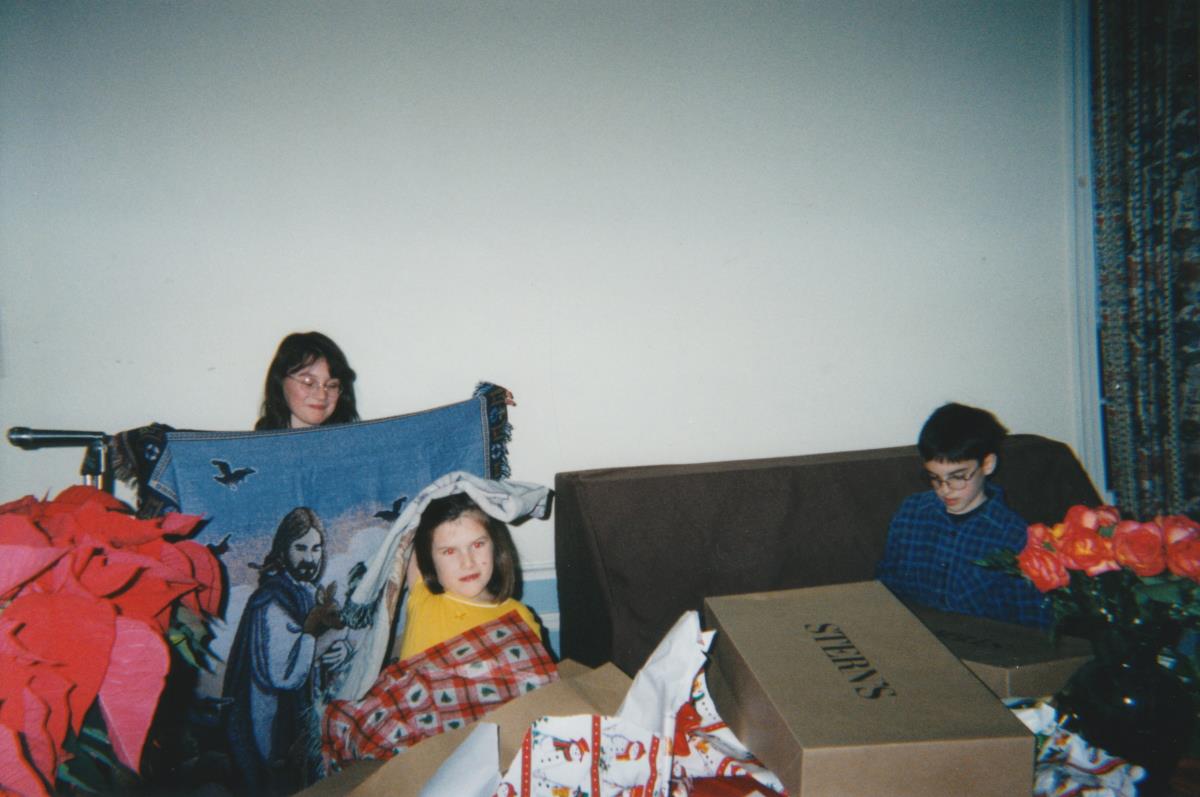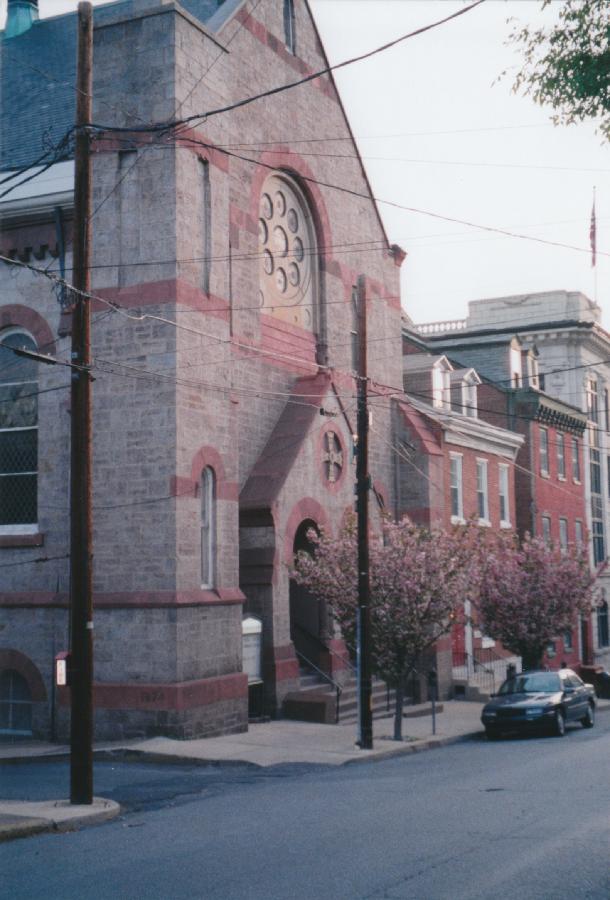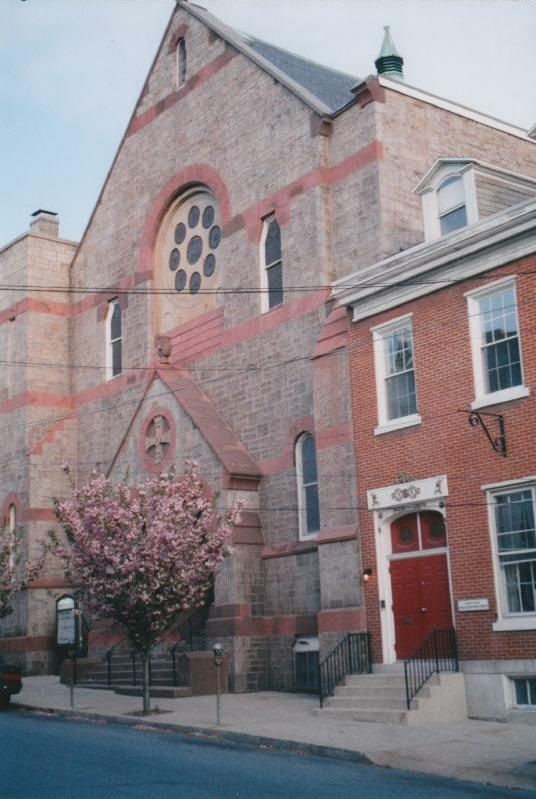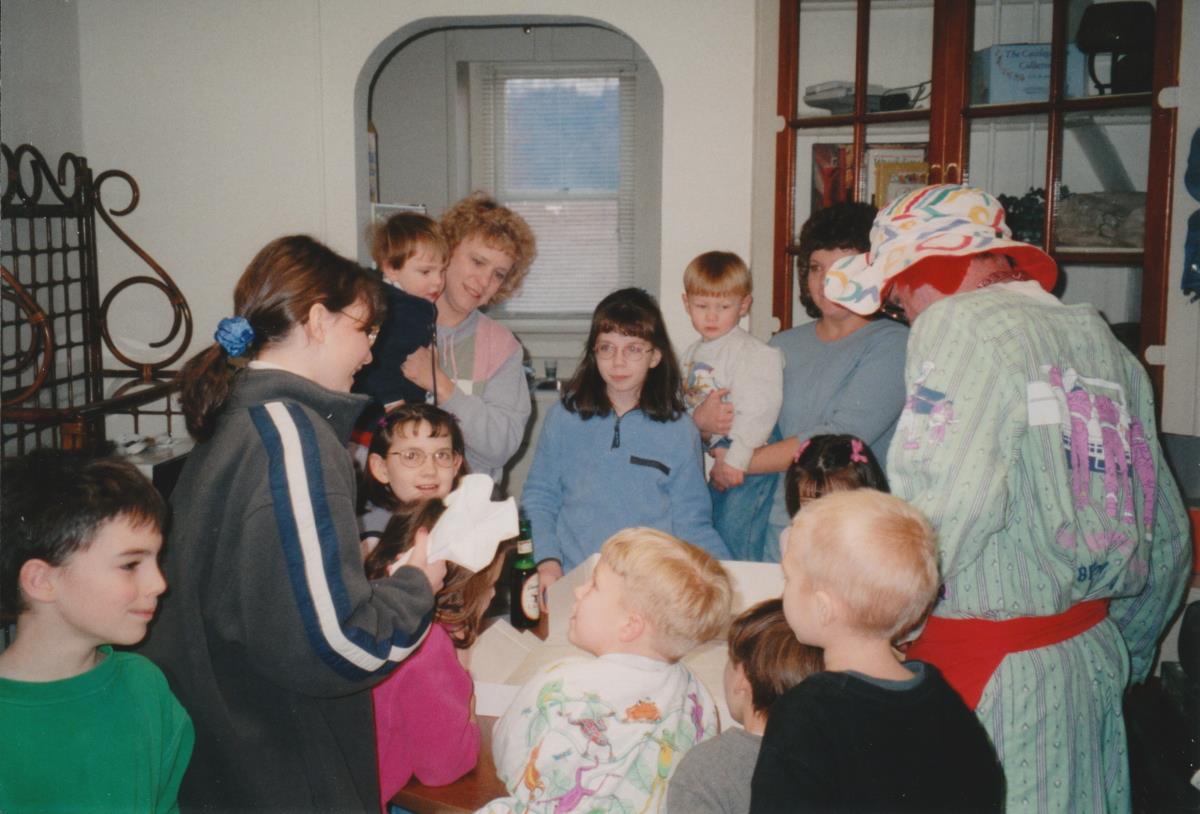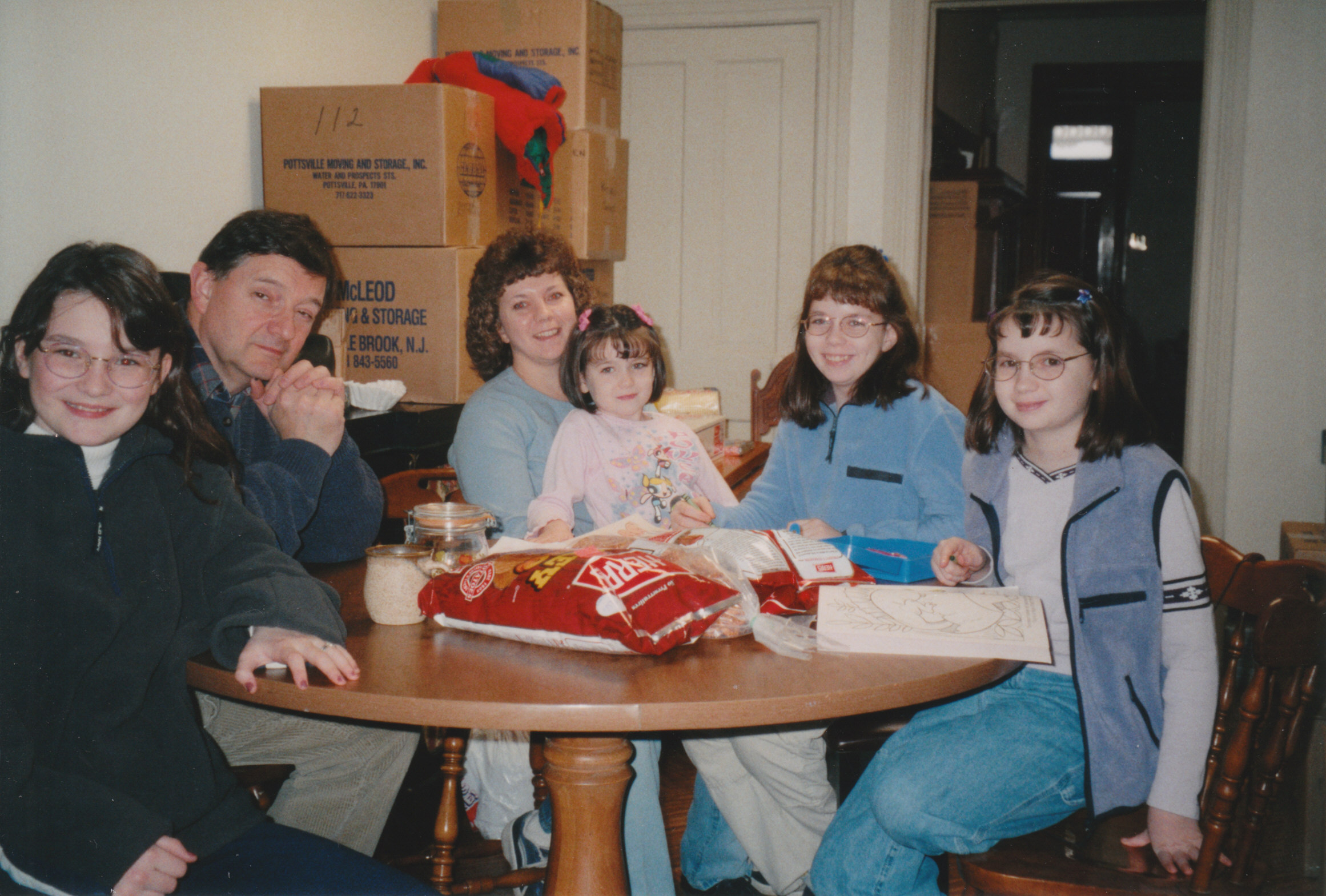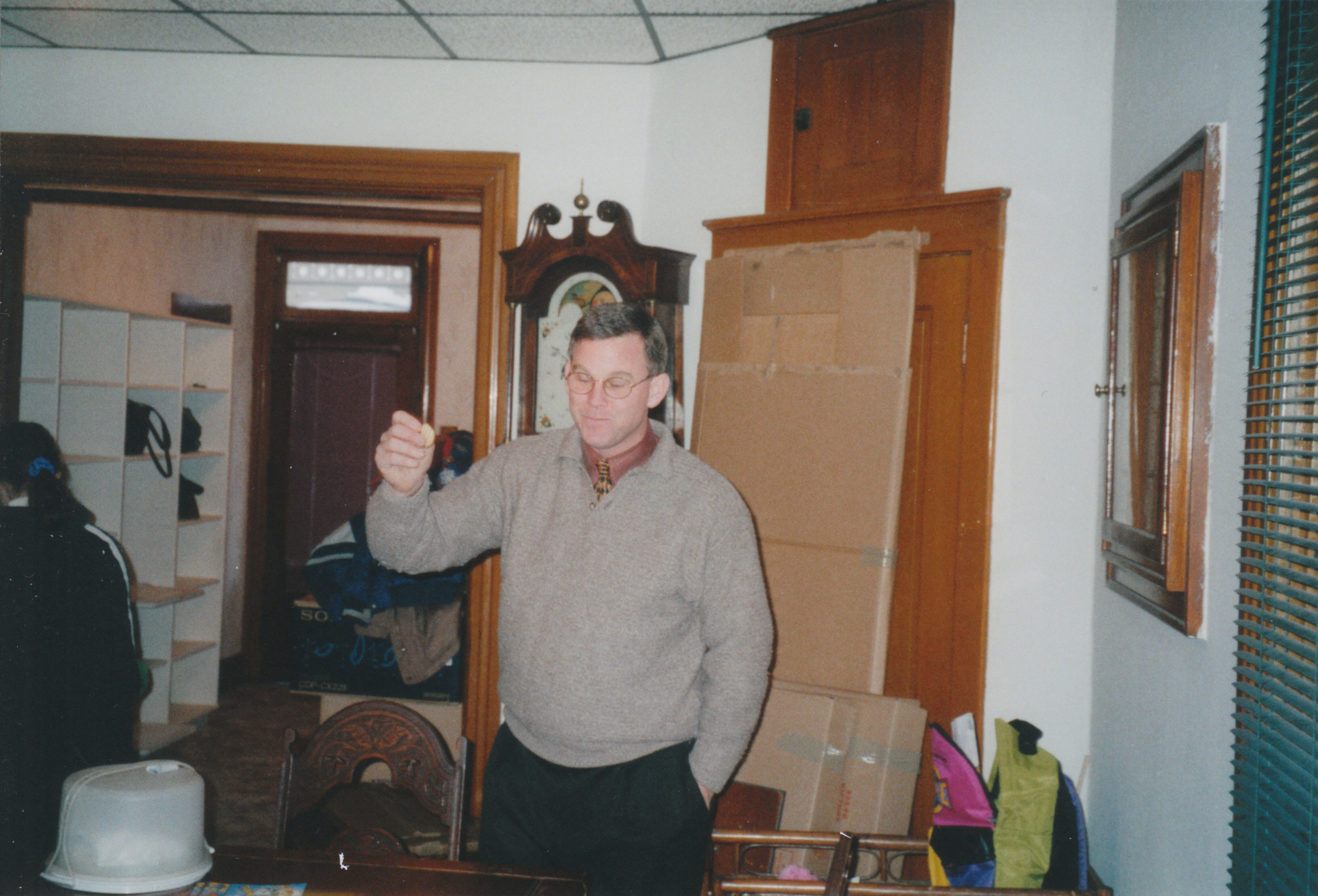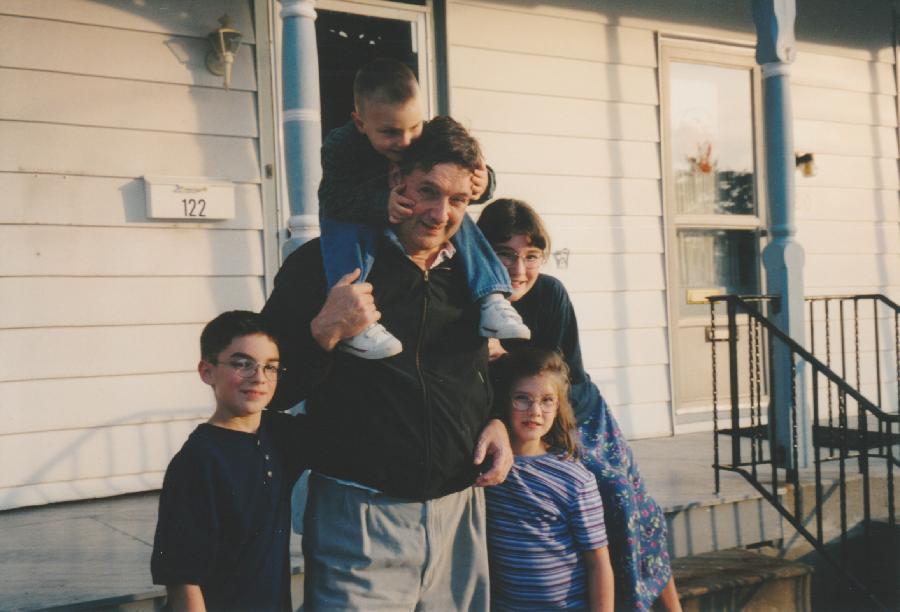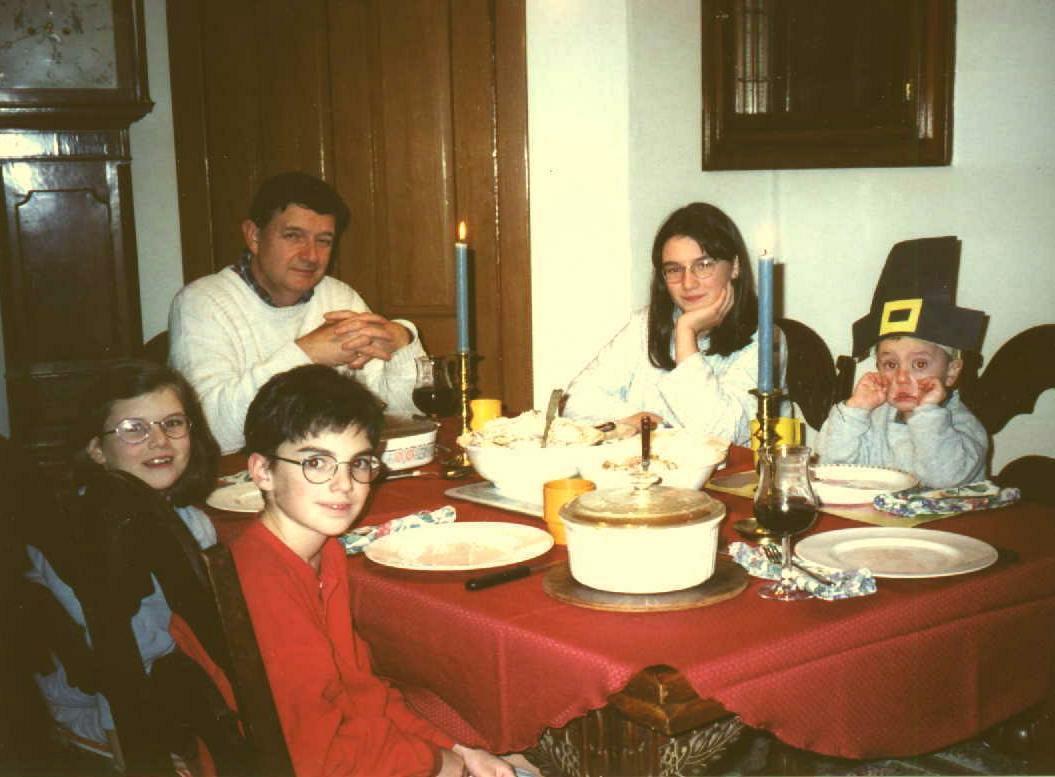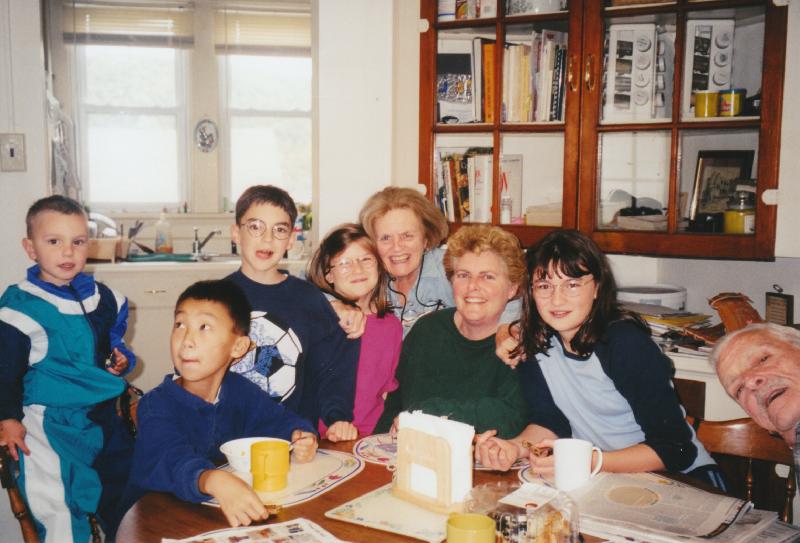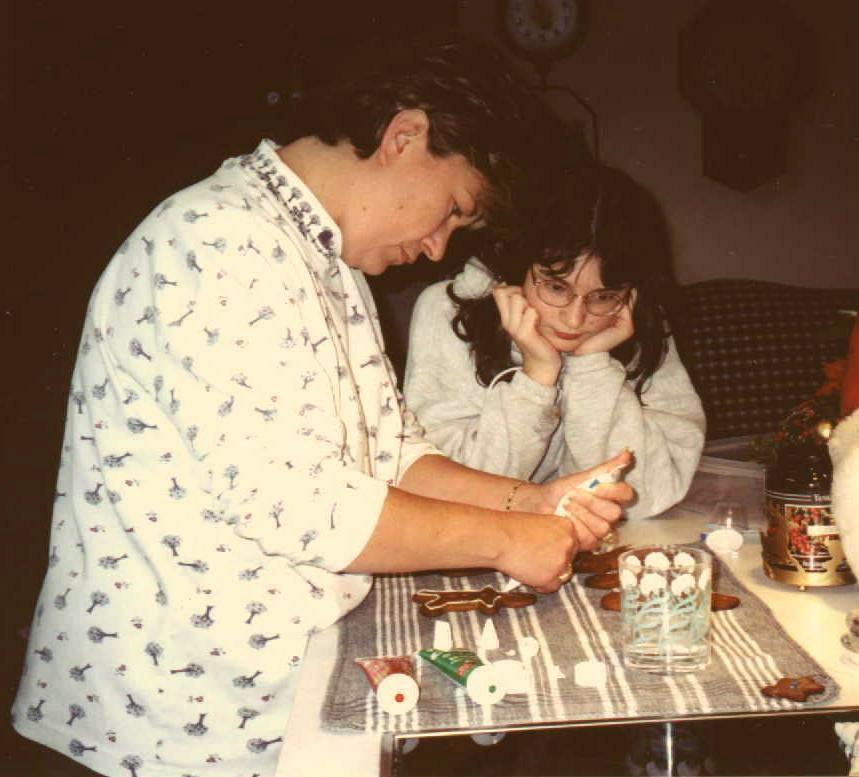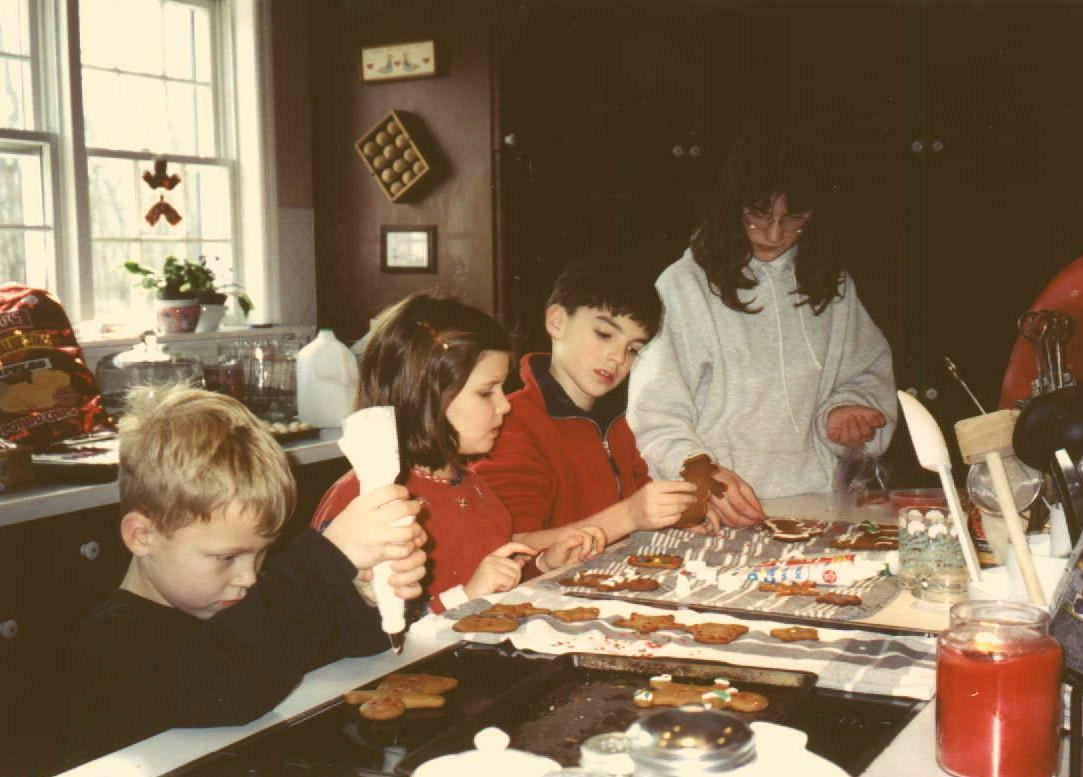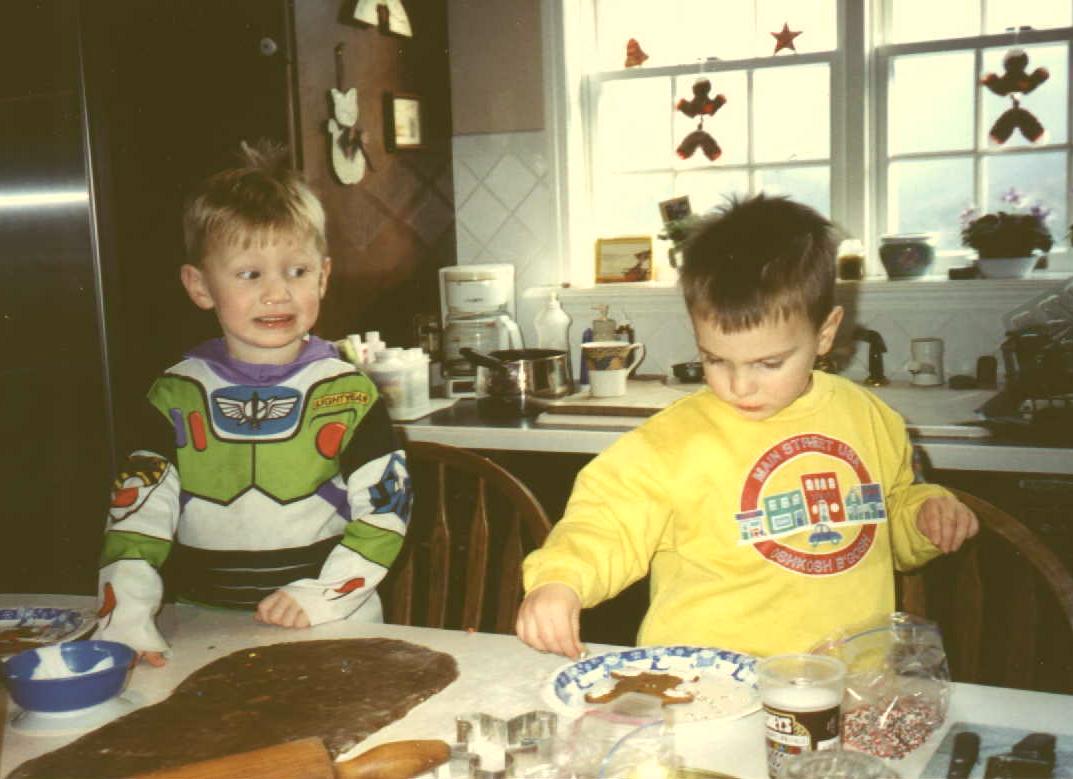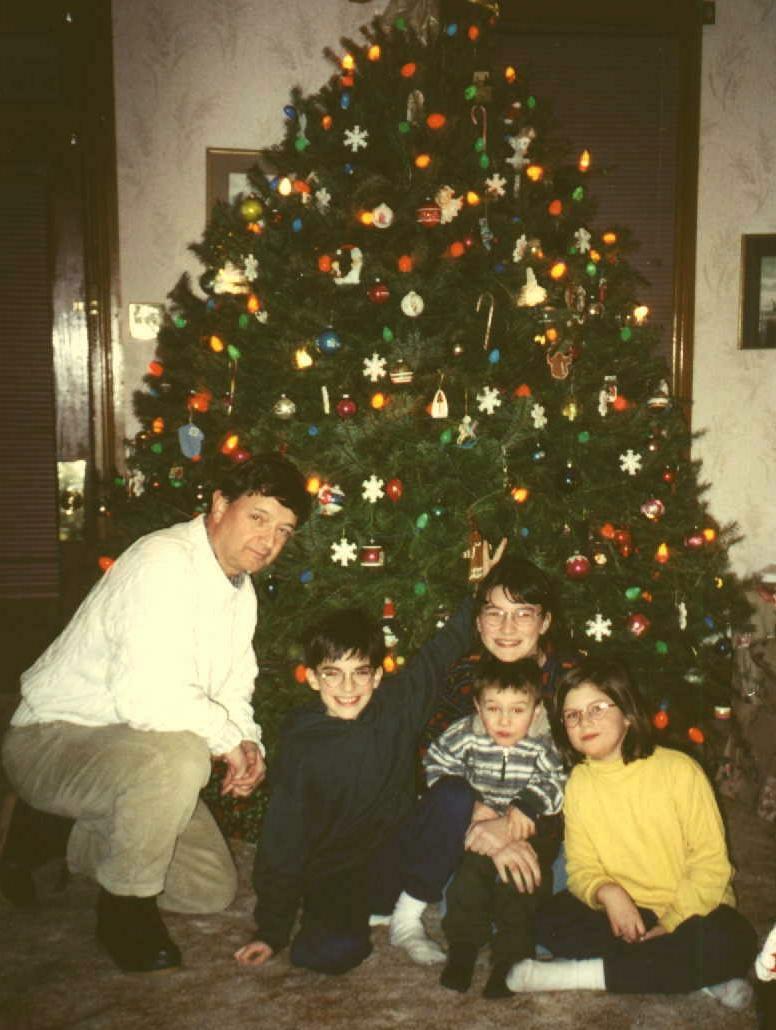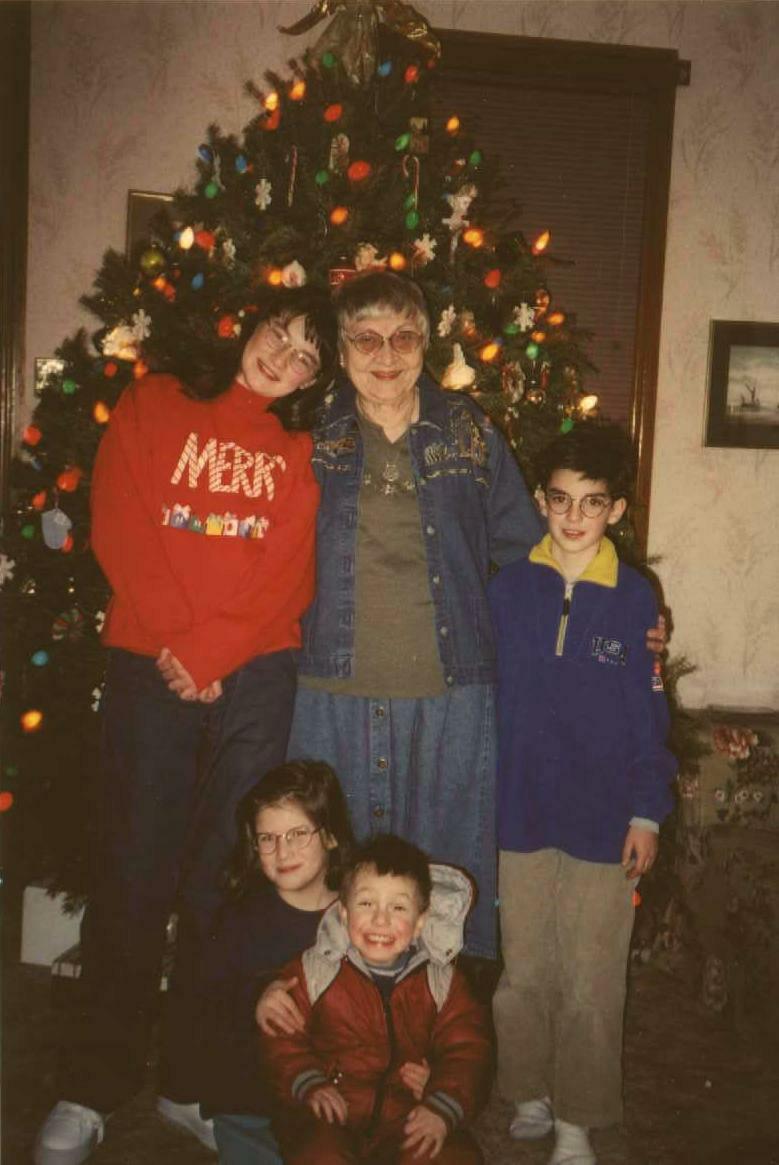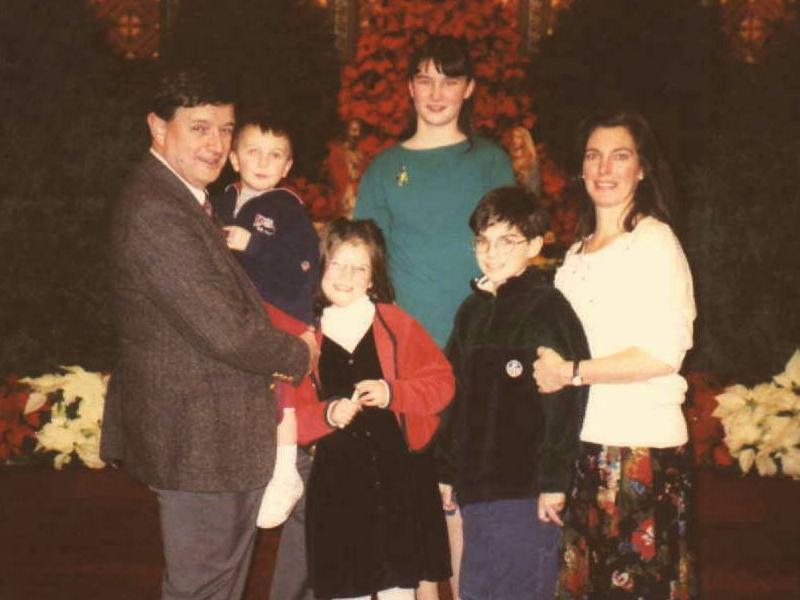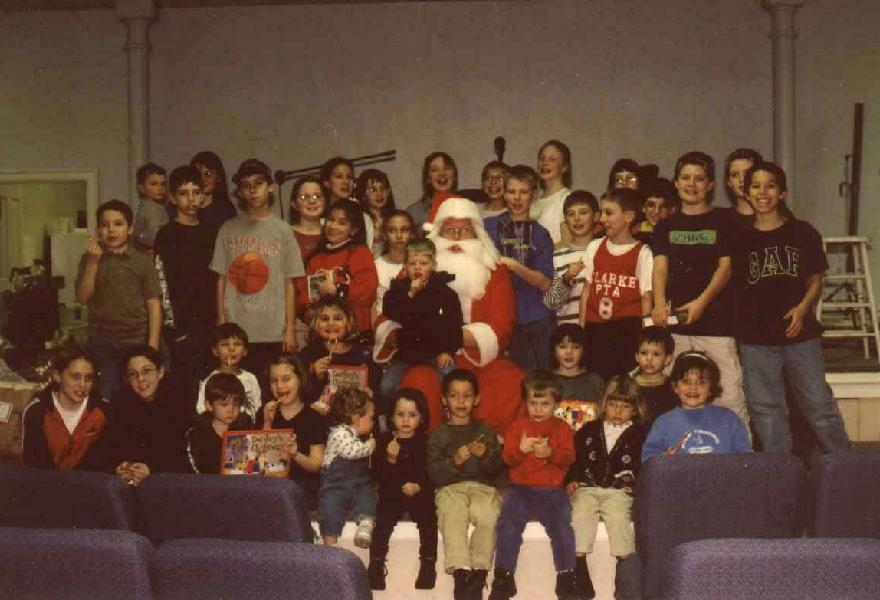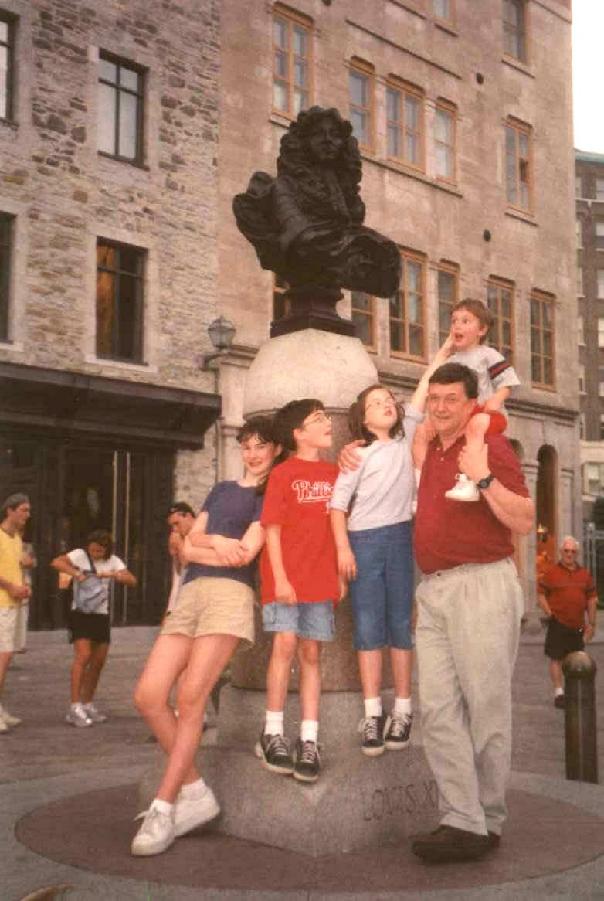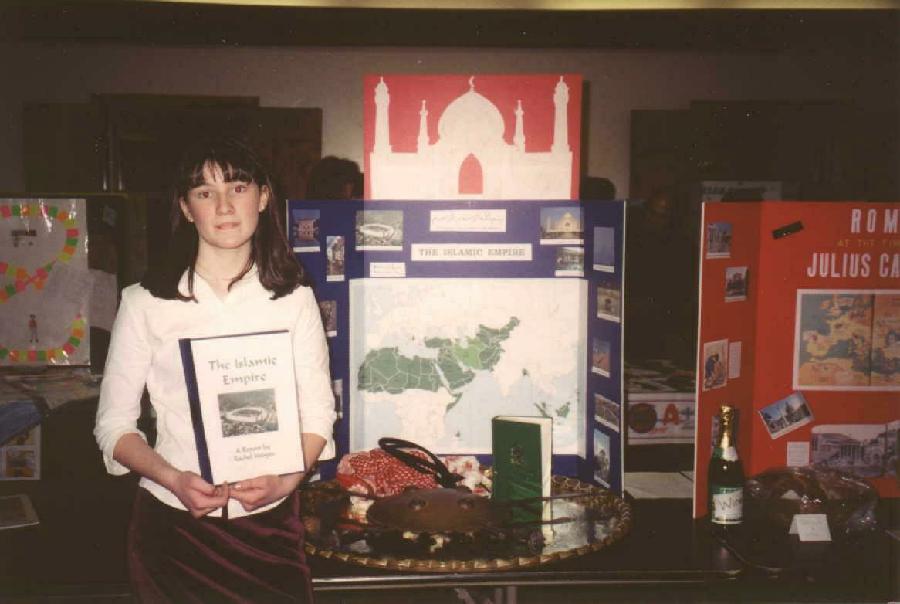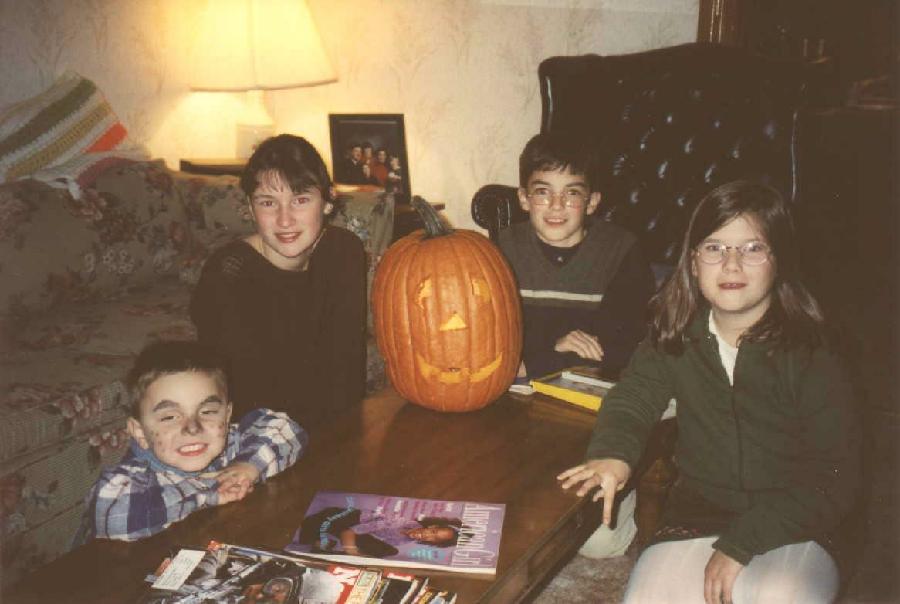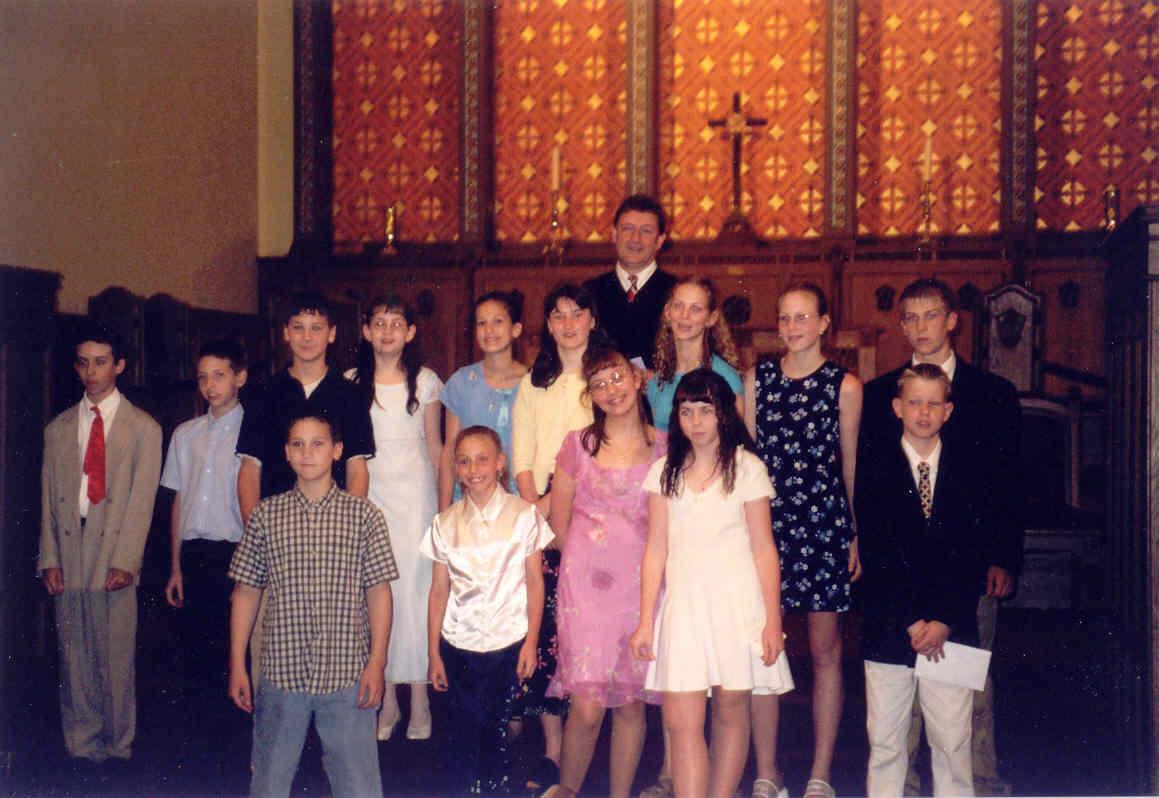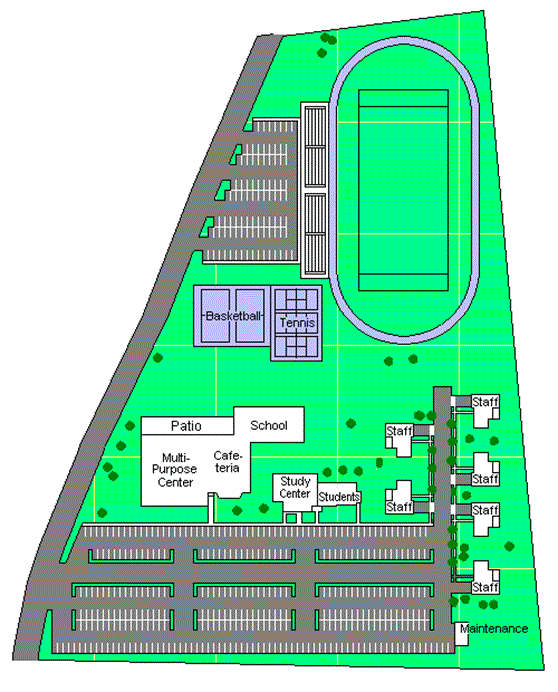|
The textual material on this particular page is drawn directly from my published work
The Spiritual Pilgrim © 2021, pages 196-214.
|
|
The decision to look into interim pastoring
In October, I attended a week's session of interim-pastor training. But why now interim pastoring? First of all, my preference would have indeed been "new church development." And certainly the Palisades Presbytery (especially Barbara) had done everything possible to support me in such an endeavor. But the financial costs involved greatly exceeded the presbytery's own resources. Then suggestions began to rise that I would make a great "church doctor," that is, interim pastor. Transitions in churches from one pastor to a new pastor tended to be traumatic times of adjustment for a congregation (as I myself knew full well on a very personal basis). Very often these transitions occur not just because a pastor decides to retire. They, in fact most frequently, happen because of a decision of a pastor to move on to a new congregation, for various reasons. And such transitions tend to be a bit like a death in the family, or a divorce. It leaves behind wounds for the next pastor to deal with, making life very difficult for that new pastor. Besides coming on the scene with his or her own ways of doing Christian ministry (a jolt to a community already used to doing things religiously in this or that particular way) there are hurt feelings to be dealt with. This then requires a very special kind of pastoring, well beyond the normal definition of pastoring. It has been discovered that the best way to handle such transitions is to bring in an individual who purposely is there only to help a congregation make the emotional adjustments needed to ready the congregation for a new pastor. Everyone understands that the interim pastor will not be that actual pastor, but certainly will lead (in a very special way) during this brief (typically a year or two) time of adjustment. But it's not only a time of adjustment. It's a time of self assessment, of introspection as to how the congregation sees itself, its priorities, its needs as its faces the future. These matters must be made as clear as possible to a congregation, before it begins the process of a new pastoral search. Because it must know as much about itself, as it knows about the makeup of the pastor it seeks. Thus it was that I agreed to possibly go down this new road of interim pastoring.
The call from Dunellen
Barbara's husband, John, happened to be the Interim Executive Presbyter of Elizabeth Presbytery (fairly close by in central New Jersey), and she put him in touch with me. It just so happened at that moment that one of the churches in his presbytery was in need of someone who could get it through just such a traumatic time of transition. Both the senior and associate pastors had just left the church, one week apart! They had not gotten along, the associate pastor having long served the congregation in the role as mere associate, and was deeply disappointed when the church called a younger man rather than himself to lead them when the former lead pastor retired. Tensions built over the years between the two (and their respective followings) to the point that the younger lead pastor was finally able to announce to the congregation that he had just accepted the call to a new church, only days after the associate pastor had turned in his resignation, in his desire to simply retire from the ministry. Thus John passed on my dossier to the church committee that was now looking for an interim pastor. The Dunellen congregation being the most "evangelical" of the churches in the presbytery, he believed that I would be a "natural fit" in that worshiping community. However, a short time later I received a phone call from the head of that committee, Ned. He basically was calling to thank me for my dossier, but to let me know up front that the committee already had two people in mind for the interim position and probably would not be considering me. He was very matter of fact, but nice, about it all. We just fell to chatting about things. I wasn't particularly bothered by the call – as I really had not given the Dunellen matter any serious thought before he called. Then a couple of weeks later, just as I was about to head off to the interim-training seminar, I got a call back from the same man. He told me that the situation in Dunellen had taken some new turns and now the committee was indeed interested in interviewing me. I told him that I would be glad to do so after my return from the seminar. We agreed to get together in early November. During the seminar held at Stony Point, NY, this phone call was somewhat in the back of my mind – though only just slightly. Now a week or so after my return I found myself on the way to an interview in Dunellen, not sure what to make of the matter. The interview itself went completely smoothly. I enjoyed it very much – but had learned not to read too much into anything, except that upon my return to Garfield a call had already been put through to Kathleen. It seems that within a few minutes of my departure they came to a unanimous decision that I was the one for the job. So I gave them a call – told them I was interested. And that was that. They wanted me to start as soon as possible. In one way I wanted to get on with my life. I had every good reason to leave the next day for Dunellen – and a whole new world (and full-time pay). But I realized that we were getting close to the Christmas season – and I really felt that I needed to stay through to the end of the year to bring my life to a proper close in Garfield. And so it was: the family and I would be moving to Dunellen in time for me to take up my duties there on January 1st, 1998.
Saying goodbye to Garfield
When I informed the Garfield session of what was up, I was not expecting the stunned reaction. I couldn't imagine that they hadn't figured out that the Hodges family just could not go on like this forever. Anyway, despite the millions of reasons why it had to be, the decision did not come as easily as I thought it would. Our kids didn't understand things from our perspective. Garfield was all they knew of life. The only friends they had ever known were in their Garfield world. I didn't think it was much they were leaving. But they didn't know that. Garfield was everything to them. It had been a very tough seven years. I was exhausted – physically, emotionally and spiritually. Anyway, we finished out a fairly normal Christmas season during which my widowed mother paid us her annual Christmas visit, and during which we packed, and packed. It was a strange Christmas for me. Life was both highly disrupted and yet very good – full of promise. I knew that a major chapter in my life was coming to a close. And I was anxious to get on to the next chapter.
Dunellen – and the First Presbyterian Church
Dunellen is a tiny town (1 mile square) located just to the west of Plainfield. It is an old middle class town with nice-sized homes set back from tree-lined streets. The First Presbyterian Church sits behind a small park facing the main north south street, Washington Avenue. Intersecting Washington Avenue is Dunellen Avenue, where are situated both the church and the 2 manses owned by the church. Dunellen Avenue is a broad, quiet, tree-lined street, with large turn of the century (or earlier) homes facing out on it. I fell instantly in love with the area. It reminded me very much of Georgia Avenue in the Oakleigh Garden District of Mobile – which I once loved dearly. The church is a complex of buildings attached to the sanctuary, which seemed as I was being escorted through it all to be a veritable labyrinth of rooms. The sanctuary is painted white and is light and airy with warm hues from the stained-glass windows. When I arrived at Dunellen, they were debating about going to one worship service – for their membership had dropped from a high in the late 1960s of almost 2000 members down to the present size (officially) of 577 members. But for me, at over 500 members it was still a very big church. Anyway, we would continue the two-services policy. Also, as just explained, they had had two pastors leading the congregation. That was another decision they had made: to have only a single pastor (to avoid future conflict, the likes of which they had been dragged through?) and instead of hiring an associate pastor, to hire a number of part time parish workers instead. That nonetheless left the solo pastor with a lot of responsibilities that parish workers could not pick up on, such as weddings, funerals, a multitude of worship services, meetings, etc. But anyway, I was glad to be busy again – even if the pace at times seemed totally hectic. |
|
"What are your plans?"
I was very pleased to have received this invitation to serve as the Interim Pastor of this church – even though it meant that it would be only for a relatively brief period of time. But I felt that finally God had called me forward from a long-stalled life. When I was presented to the new Elizabeth Presbytery to transfer my pastoral credentials there, among those at the presbytery meeting was an acquaintance from my days in seminary. I know he was trying to "promote" me a bit before the others – but what he had to say on my behalf seemed a bit ironic as he spoke up. His comments went something like this: Miles, we're very pleased to have you join us as an interim pastor. Your talents are quite extensive and we're fortunate to have you as a part of our presbytery. But really, Miles, you ought to be coming among us on a more permanent basis – with a regular call to a church, one where your talents can really take hold. Do you have plans along those lines? Indeed, Miles, what are your plans?Of course I was so glad to be moving on from Garfield that I wasn't thinking much beyond the opportunity that Dunellen offered me – even if it was only as an interim pastor. But more than that – I remember thinking: plans? With a sort of grin taking over my countenance, I spoke up exactly in that manner: Plans? When was the last time I had "plans"? I used to be a person of great plans. As a Yuppie, I had great five year plans and ten year plans for life. But since I gave my life in service to the Lord, plans are one of the many things I have had to give up. In working for the Lord, I have found that my plans are pointless – as I end up doing pretty much what God wants me doing, when he wants me doing it, anyway. I have learned more recently simply to look to the day – and let the Lord worry about tomorrow.And I was serious – for that had indeed been a definite part of the "deal" I had worked out with God.
The SCC
In the few months that had elapsed between the departure of the two previous pastors and my arrival, a committee called the Session Communications Committee (SCC) had been put into place to provide leadership for worship and other day-to-day matters facing the church. I asked the four members of the SCC to stay in place as a weekly advisory group to help me become acquainted with the church and its ways. And as the rest of the "staff" was also almost as new on the job as I was, I was going to have to depend on the SCC to familiarize me with procedures around the church. For the next 9 months this committee (eventually joined by the other staff members) served as an invaluable sounding board for church policies.
Becoming their pastor
There were a number of funerals in that first month, including a venerable saint who had long served previous pastors as the Clerk of Session. Another funeral that month was of a four-month-old child that a number of us had prayed over with the oil of anointing – and that we had thought was making miraculous recovery – when suddenly he died. These funerals involved the church in important spiritual rites of passage that called on all my pastoral strengths. But thankfully the Spirit was with me. What surprised me the most was that the divisions that I was told to expect, between the factions that had lined themselves up behind the previous contending pastors, just never really surfaced – not on Session, and not even within the congregation. I'm not sure why. These loyalties had been quite strong. But maybe everyone knew that it was simply time to move on. In short, I just sort of fell easily into the role of pastor – and the church seemed quite welcoming of me in that role. For me, having spent seven years doing battle with contending power groups in the Garfield church, this was itself very healing. It's as if God knew what the Dunellen church and I both needed. Well, of course!
The worship issue (again!)
There was, of course, one issue awaiting me in Dunellen – the issue that would follow me wherever the Lord directed me as a pastor: the matter of the structure and timing of worship. The sermon tapes I had submitted to the committee that called me to Dunellen were of typical teaching sermons (I didn't have "favorite" sermons, but usually just sent on the tapes of the most recent sermons I had preached) which probably ran 30 to 40 minutes or so in length – though I was not sure since I had ceased timing my sermons long before. But the issue was passed over quickly in the original interview. They had liked the sermons very much and hadn't given any thought to their length. In part the inevitable length-of-sermon issue was eased at Dunellen by the fact that the well beloved "emeritus" pastor of 30 years at the church (who had retired eight years earlier) preached sermons that had to fill a half-hour radio time slot – so his sermons obviously ran certainly longer than the normal Presbyterian 18-to-20-minute limitation. Also, the immediately previous pastor tended to preach for about 25 minutes – but managed to keep the overall dimensions of worship "in bounds" by cutting verses from hymns and eliminating such things as children's sermons when baptisms or communions were also to take place (with the two sacraments presumably never taking place on the same Sunday). So services previously had run maybe an hour and ten minutes at the most. Upon my arrival in Dunellen worship immediately went extensively past that time frame. But the issue was not just a matter of the sermon length. I always invited elders to participate in worship in various capacities – and most notably in the harvesting of the joys and concerns of the congregation in preparation for Sunday morning prayers (which they then led). Without the pastor running a tight rein on congregational participation, these joys and concerns could get to be numerous, especially as the congregation came to understand that it was okay to speak up during worship about something on their hearts. Not surprisingly, joys, concerns and prayers of the people often ran to over ten minutes – instead of just the 2 or 3 minutes of typical Presbyterian prayer time. Also, I encouraged the choir to contribute their own music more than once in the service. Besides, we alternated each week between standard Presbyterian hymnody (three hymns) and the newer praise medley by which we called the congregation to worship with a number (at least 5) of praise songs – plus two hymns elsewhere in the service. Also, I took the children's sermon very seriously. I introduced the major points of the regular sermon to the children in the children's sermon so that they could also be a part of the message that I felt God was bringing the church that particular Sunday. It also helped introduce the regular sermon. Thus I did not eliminate the children's sermon because it conflicted with communion or baptism. And finally – I love to pray. I reserved the leading of the opening prayer of adoration and confession for myself as part of my contribution to worship (the other parts being the sermon and the sacraments). And these prayers were moved by a keen desire to bring the people to a sense of standing before Almighty God – placing mortal flesh before Pure Holiness – and moving the worshippers to a spirit of both profound repentance and equally profound forgiveness. Anyway, the opening prayers and assurance of pardon might have lasted as long as 4, 5, 6 minutes – which to a worshiper used to that ritual lasting no more than a couple of minutes, such 4 to 6 minutes might have seemed like an eternity.
The reaction
All in all, services got lengthened to around an hour and 30 minutes – and with communion, sometimes even longer. Needless to say, it was not long before mutterings could be heard from the older Presbyterians who were certain that no one ever worshiped that long! The reaction was not all negative. In fact quite the contrary. On the part of many, the response was highly enthusiastic. And on the part of the large majority at least, the reaction was "give it a try." Mostly everyone enjoyed worship – except those who opposed the change as a matter of principle.
Preaching
My preaching in Dunellen remained pretty much as it always had been: heavily scriptural with a lot of spiritual struggle to gain a hearing of what I perceived as God's message to us through the scriptural work. My preparation style remained consistent with what it had been in Garfield: sitting with the scripture all week and then overnight Saturday, on the couch and with the light on all night, making the last struggle to gain that divine hearing. I would prepare a final draft of the sermon in the wee hours of Sunday morning and then reduce that down to an outline on a half-sheet of paper – which once I started preaching I tended to work without anyway. The whole process was designed to make me the message – everything that I was and thought as I came to the pulpit. Actually "coming to the pulpit" had not been something I had done for years when I came to Dunellen – for I had taken up the practice in Garfield of preaching from the center aisle. But I was asked to preach from the pulpit, as the previous pastor had also preached from the center aisle, which some of the members complained about. I agreed to do so – even though the pulpit was backed up almost to the chancel wall – so that you had to preach even past the choir to the congregation. It felt very remote from there. But since there were bigger issues centering on my preaching, I figured that this was something that we didn't need to add to the list of issues. At first my preaching was topical – as I laid out during the first few months the basics of the gospel: God's perfect creation, human sin and the fall, God's loving efforts to heal the breach with the Law, the Prophets and finally his own Son. I preached a Jesus, fully-human and put under the same temptations and struggles as the rest of us humans, yet fully divine, without sin, and the embodiment of the Way, Truth and Life which is the only Way to restored unity with the Father. Eventually I took up my Garfield practice of preaching the lectio continua, that is, preaching through a whole book of the bible, chapter by chapter, verse by verse. I started with Paul's letter to the Ephesians – which took us from the late Spring to the mid Fall. Then I took up the Gospel of John – with an Advent/Christmas break preaching from the Advent and Christmas passages of the Gospel of Luke. This continued on through May of the next year, when I returned to more topical preaching around the subject of the meaning and content of "faith."
Biblical teaching
As I am by nature a teacher, one of the things I took up immediately upon my arrival in Dunellen was Bible study – starting off with a course on Paul's letter to the Romans, and then after completing the Romans study, moving on to a study of the Gospel of Mark. Although all of this was very familiar material to me, as it was to some of those attending the class, we all enjoyed the process of letting God's Spirit bring us to an ever-deeper appreciation of God's Word to us through such Scripture. Teaching Western Civilization's grand development
By the summer I was also ready to introduce the material I had been developing in Garfield – and which first appeared in various stages of completion on my first personal homepage or website that I set up around that time (1998). It was made up basically of a survey of the historical development of the Great Ideas of our Western culture. The primary focus was on our Western "cosmology" – our view of the universe and our understanding of our place within it. As such, it included a lot of material relating to the matter of science and theology. In our Dunellen study group, we started up with a lengthy study of the ancient Greeks, especially Plato and Aristotle, who are, in many ways, basic models for much of subsequent Western intellectual theory. We discussed the Roman and Jewish contributions – and then focused on Christ and the early Church as the culminating amalgam for Western thought. We discussed the impact on Christianity of its "establishment" as the official Roman religion (I call this the "Romanization of Christianity"), the material decline of Rome, the onslaught of the Germans and Arabs, the survival of the Roman church, and the "Dark Ages," including both Charlemagne and the coming of the Vikings. We discussed at length the impact of the crusades, the emergence of the High Middle Ages, the Italian and Northern European Renaissance, and the weakening of "Medieval Christendom." By the fall we were studying closely the rise of the new scientific cosmology under Copernicus, Galileo and Kepler, the challenge of the established church during the Reformation, and the new intellectual individualism which began to emerge within Western culture during this time. Then we looked at the early "Enlightenment" – such revolutionary thinkers as Descartes, Spinoza, Leibniz, Hobbes – but especially Newton and Locke. By the Christmas season we were studying the later Enlightenment and Christian thinkers: Berkeley, Rousseau, Hume, Kant. We also studied the Christian "Great Awakening" in the mid-1700s of Whitfield, Wesley, Freylinghuizen, Edwards and others. Things slowed up a bit after the New Year with a number of special activities coming on. But we did manage to look comparatively at the American and French Revolutions, Napoleon, and then the philosopher Hegel – before we shut down for Lent. Following Lent, we discussed the 19th-century extension of the materialist vision of life (Darwin and Marx) and then turned to the discoveries in physics in the 19th and early 20th century (relativity and quantum theory) that began to call this vision into question. We finally brought the teaching series to a close in exploring the emergence of a "new science" – with the possibilities it holds out for a truce in the battle between science and Christianity! Amazingly, I managed to hold the attention of a dozen or so participants, who followed this whole series from start to finish, and who told me how much this "introduction to Western thought" had meant to them, especially in the way it added greater strength to their own Christian faiths! And that – after all – had clearly been my purpose, from beginning to end. And I was very pleased to have been of such service to these friends of mine. |
|
Outreach: "Praise in the Park" (September 1998)
I'm not sure exactly how the matter came up. I have long had a dream or a vision of leading a church revival – under a blue and yellow striped tent, with lots of music, a message of repentance and renewal, and lots of prayer. The Dunellen church itself knows the meaning of renewal – having hosted a renewal weekend several years back. But at some point in the early summer, we got into discussion within the SCC about holding some kind of a revival outside in the park just across the street from the church. The idea was immediately taken up by Session and soon a committee of three elders and myself found ourselves making plans for just such an event, to be called "Praise in the Park." We figured that September was as early as we dared hold it – and the best month overall for weather purposes. But the park was reserved two weekends in mid-September for the Dunellen Art Show – and we would be starting up our Sunday School program in late September. This really left us only Labor Day weekend to work with. We decided to go for it! We got permission to use the park on Saturday, September 5th. We hired a professional sound crew, contracted the services of a Christian recording artist to put on the main musical event, had a huge banner made up and placed across Washington Avenue at the park, lined up radio and newspaper announcements and even had me interviewed on a Christian radio talk-show (about 20 minutes) concerning the event – and other unanticipated matters! The church itself swung behind the event by putting together display tables for the multitude of programs the church operated or supported. We had Christian clowns, arts and crafts tables, and skits for the kids. And we lined up some of our own musical talent so that we would run live music end-on-end through the whole event. We bought tons of hot dogs, hamburgers, soda, ice cream – even a cotton candy machine – all offered free to those who came to the event (our Boy Scout troop volunteered to serve the food). The day arrived – and the weather was an absolutely perfect early Fall day – mild and dazzlingly clear. Noon rolled around and we were ready. And the church was a perfect host – to the thousand or so who came out to see what this "Praise in the Park" put on by the First Presbyterian Church was all about. The music, played from the huge gazebo at the center of the park, was outstanding – not only by the recording artist – but by our own local soloists and choirs. In fact our Spanish-English and youth-adult mix was perfect. Then at 4:00 we went into the worship portion. A lot of people left as we moved into this phase – but a lot of people stayed. From the gazebo we went into a worship of praise music. Then Silvio Del Campo (our Hispanic minister) and I presented an Hispanic-English message. And we concluded our worship with prayer – and with an invitation for people who wanted personal prayer to join our prayer teams where we would be glad to pray with them for whatever moved their hearts. Wonderfully, five or six long prayer lines formed to receive prayers with the oil-of-anointing. And thus we completed the day's activities with a powerful prayer ministry. Assessing the event
All in all, it was a great success – though we knew beforehand that it was going to be a perfect success, just because of the privilege of putting the event on at all. We had made up our minds leading into the event that if only 5 guests came out that would be just fine – because the church itself had rallied to the call and that alone was cause enough for rejoicing. Nonetheless – we had wonderful feedback from the locals about the event – and the continual question: "Will you do this again next year; I want to bring some friends." The answer was a big: "Yes, God willing." But overall – the best part of the event was what it did for our congregation. We knew we were evangelical. But now the town knew that as well – and that's how we wanted to be known. We wanted to be known as a people on fire for our Lord Jesus Christ – ready to greet the immediate world around us in his name. We were not a closed circle of pious Christians – we were ambassadors of Jesus Christ to the world around us. |
One
of the fun things we did was to put on a huge community fair "Praise in the Park" in early
September of our first year in Dunellen ... on the square-block park
immediately in front of the church. It was a beautiful day.
And there was a huge turnout for the event.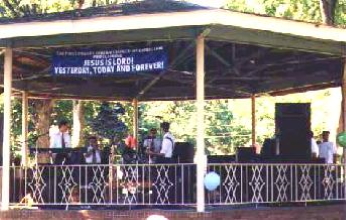 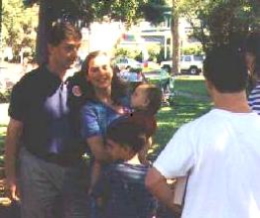 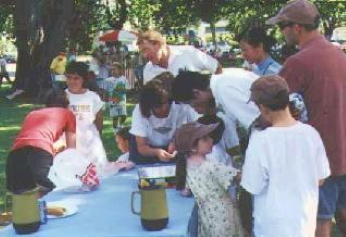 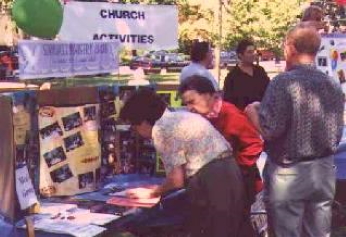
|
|
Our children's reaction to the move
Dunellen was such a pleasant physical and emotional improvement for me over Garfield that it really hadn't occurred to me that my children might view the move in a different light. My older, now-6-year-old, son Paul was for the longest time deeply nostalgic for Garfield. It was not that he had so many friends at his former school. The boy he was closest to had moved a year before we did, and Paul really had not formed up another friendship in Garfield in that next year. But something about Garfield, even the house, which was the only one he had known so far, seemed to be very dear to him. Elizabeth, our younger, just 4-year-old daughter, was quick to make a whole new set of friends at her new preschool at the Dunellen church and seemed not to miss Garfield at all. Our older, just 9-year-old daughter, Rachel, was both excited about the move – and sad to leave behind a couple of very dear friends, one of whom was like a sister to her. Getting them slotted into the new life
Upon our arrival in January of 1998, Rachel and Paul were entered into the 3rd and 1st grades of the Redeemer Lutheran School in nearby Westfield. The public school in Dunellen was quite good, we were told. But still, we wanted our children to be educated with the idea that truth and knowledge were not matters divorced from the sovereignty and loving presence of God. The Lutheran school was an excellent one and thus we felt very good about that part of the move. But it was not really until the summer when our children got involved in outside activities. Rachel, Paul and Elizabeth took swimming lessons at the municipal pool in next-door Middlesex, and Rachel and Elizabeth took a dance course at the church during the summer. In the fall Paul joined the Dunellen recreation department's soccer program and Rachel and Elizabeth continued their dance classes. Also Paul and Rachel resumed piano lessons in earnest in the fall – and so finally we felt that we had returned them to the level of involvement that they had left behind in Garfield. They of course had friends at the church – though seeing them only on Sundays, they were not, at first, able to form as deep a relationship with them as they would have wanted. But with the passing of time, that changed, as indeed they truly came to make new friends there. Again, Rachel found a young lady at church her age to be like a sister to her. And even after we moved on in completing the "interimship," they stayed in touch. |
|
Social life in general
Life in Dunellen was everything that Garfield was not. We had a huge number of friends, ones that could be as active as us in just enjoying the social offerings of the area, especially excellent restaurants, where we gathered often for just some time together, with no particular agenda other than just enjoying each other's company. And it was a short distance from Princeton, where Kathleen's family lived, and thus visits were frequent, including their coming our way – often. ndeed, the annual Thanksgiving family gatherings of 1998 and 1999 were held in our large manse. Thus it was that Dunellen became "home" immediately, in a way that life in Garfield never seemed to be able to attain. I was not particularly active in presbytery, partly because I had my hands full with preaching, local visitations, and especially those very well attended Bible and history classes I conducted at the church. And partly this was the case because I knew I would soon be moving on. |
|
The larger world
Clinton was US president at the time, and I rather liked his work, especially since the mid-1990s when Newt pushed Clinton to the "center" of American politics, by way of Newt's political goals outlined clearly in his book Contract with America – and the consequent 1994 Republican sweep of Congress. Perhaps it was also Clinton's years at Georgetown (he was there the same time I was, though I don't recall ever having run into him back then), for Clinton's primary interests were more international than domestic. And in terms of foreign policy, he was indeed a classic Georgetown "Realist." This was something very important in my eyes, because with the fall of the Soviet Union, we were the only superpower to help support a peaceful world. It was a huge responsibility, one that I thought Clinton conducted very successfully. Thus I watched his efforts to continue a very positive relationship with a post-Communist Russia. He also appeared not to be interested in dragging America into some great democratic crusade abroad, or "nation-building" as it was termed at the time. I was also very impressed with his willingness to quickly back out of a UN-requested intervention in Somalia, when it became apparent that the locals were not going to be supportive of such an effort. And I watched him undertake a very carefully measured response in Haiti, getting the country back under its democratically-elected president that the Haitian military had recently overthrown. And I especially liked a similarly measured response (with very strong allied backing) to the ethnic cleansing tearing multi-ethnic Bosnia apart. And I got to see that same response again a few years later when he returned American forces to the area to again put down ethnic cleansing, at that point taking place in Kosovo. The significance of that Kosovo intervention in fact would become monumental to the Hodges family, though at the time, I had no way of knowing any of this! Overall – and despite the scandal surrounding Clinton's behavior with a young (and ambitious) female White House intern – I thought he had been an excellent president. As far as the scandal itself, I did not know whether to laugh or cry. It was now my Republican friend Newt that had taken up the weapon of impeachment, for clearly mere political purposes. This was something that now – with two earlier Democratic Party impeachment efforts having recently taken place – seemed to be less and less an emergency measure and now just another regularly employed tactic in the American political playbook, a development that horrified me. And it was all so hypocritical, as I knew full well that this was sadly rather common behavior in status-hungry DC, where sex, along with money and public attention, drove the political program, often Alpha women as well as Alpha men! Indeed, I was hardly surprised to find out that even as he was leading the assault on Clinton for his behavior, Newt was having another affair, this time behind the back of his second wife, with a woman who would eventually become his third wife, but thankfully one who in future years (after Newt abandoned the Congressional platform), would be part of his move into a serious Christian faith. I was not one with any right to judge anyone else on this matter, for I myself had gone down a very rocky path before I found it leading me back to God and Jesus Christ. But still, all this gave me much to think about. I guess I was back in the business of social analysis again! |
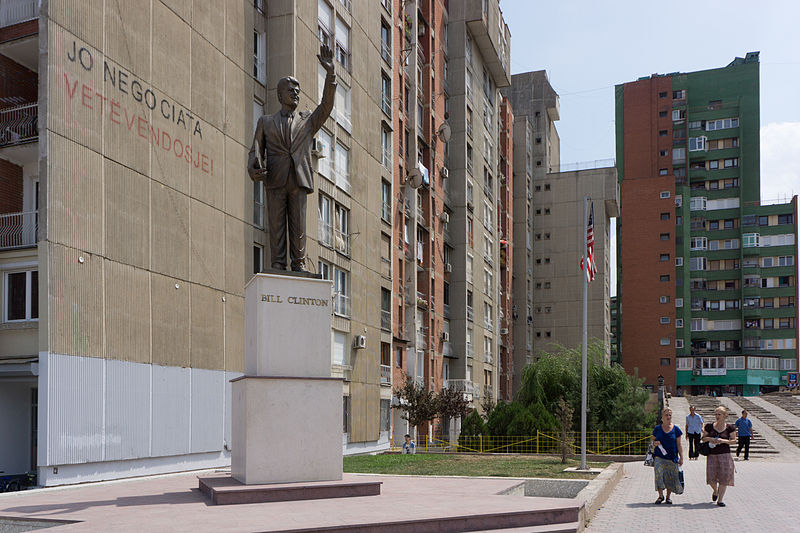
| A statue of Bill Clinton in Kosovo's capital city Pristina. I could well understand their great appreciation of Clinton. That appreciation would hit home with me even more with the arrival of Rimi (a Kosovar) into the Hodges family as my daughter Rachel's husband ... and eventually as our own pastor! |
|
The New Geneva vision is born
Indeed I was! Even though I knew better than trying to design my own grand plans for my future (much less the future of the world around me), I was by every instinct a social planner, materially as well as culturally and spiritually. I had assembled various components in building a new desktop computer, complete with a relatively large monitor and all the latest (late-1990s) hardware and software, and found myself much engaged at the computer, putting together a new website (newgenevacenter.org). There I uploaded the masses of historical, cultural and scientific material that I had been collecting in all of my previous church and presbytery courses. But I also posted there the architectural design for a large 25-acre campus, complete with carefully designed buildings, sports fields, dorms and staff housing, where people (presumably mostly Presbyterians) could come for a brief (or extended) stay – to explore more deeply the cultural-spiritual world around us, past as well as present. And I called this place "New Geneva," honoring the Geneva where I had once lived and studied, but also the place where centuries ago John Calvin had very purposely set up a "Reformed" Christian community, one attempting to live more closely according to Scriptural standards, rather than along the lines of the highly evolved ecclesiastical (and political) ways of the old Roman (Catholic) church of his days. It was to Calvin's Geneva that reformers had come – from all around Europe – to study and participate in this project of his. This included those who came from England and returned as Puritans, and those who came from Scotland and returned as Presbyterians (for that matter also, those who came from France and returned as Huguenots!). I wasn't trying to be another Calvin. But I understood what he was trying to do for the Christian community: bring it back to 1st-century Christian standards. And that was my driving motif as well. The church needed to get back to basics, and do its evangelical work within a world that had wandered far from God and his Word. And I thought that New Geneva would be a perfect setting for a similar effort to help develop the wisdom and commitment needed by Christians, to bring the church back to those same Genevan standards. Anyway, that was the big project I was still working on as I finished my days in Dunellen. |
| During
my latter days in Dunellen I began working on a very comprehensive plan
for a Presbyterian retreat or learning center … designed to help get
the denomination out of the death-dive it had put itself on since it
had embraced "Liberal" theology. I
called this project "New
Geneva" ... relating it to the reforms that Calvin had started up
in Geneva, Switzerland ... which went on to stimulate the Protestant
Reformation greatly – and birth the Presbyterian denomination itself.
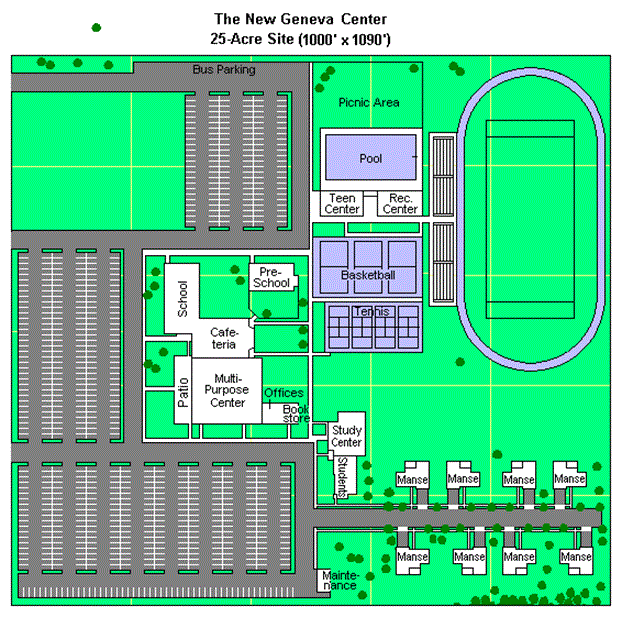 |







